

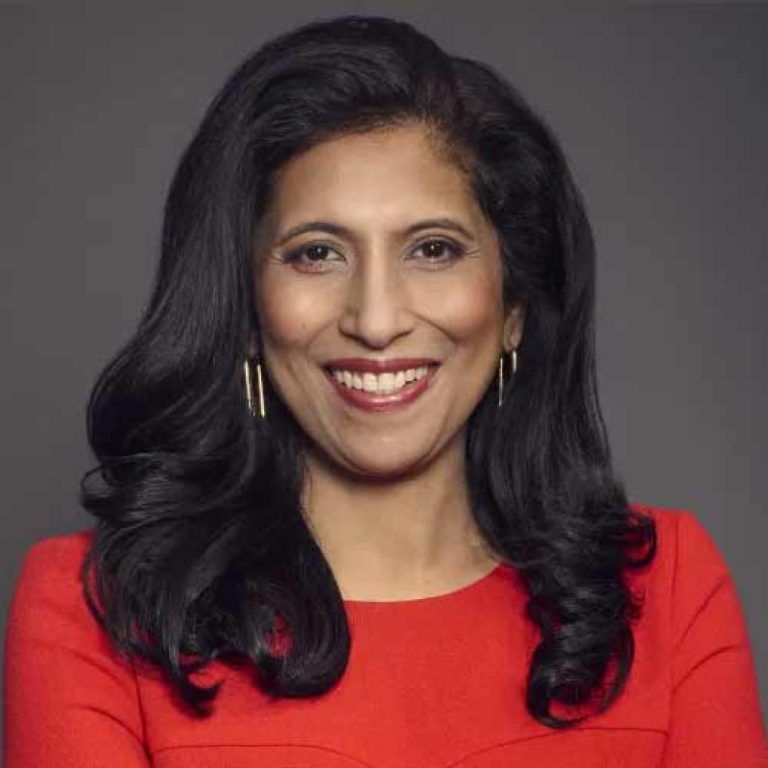
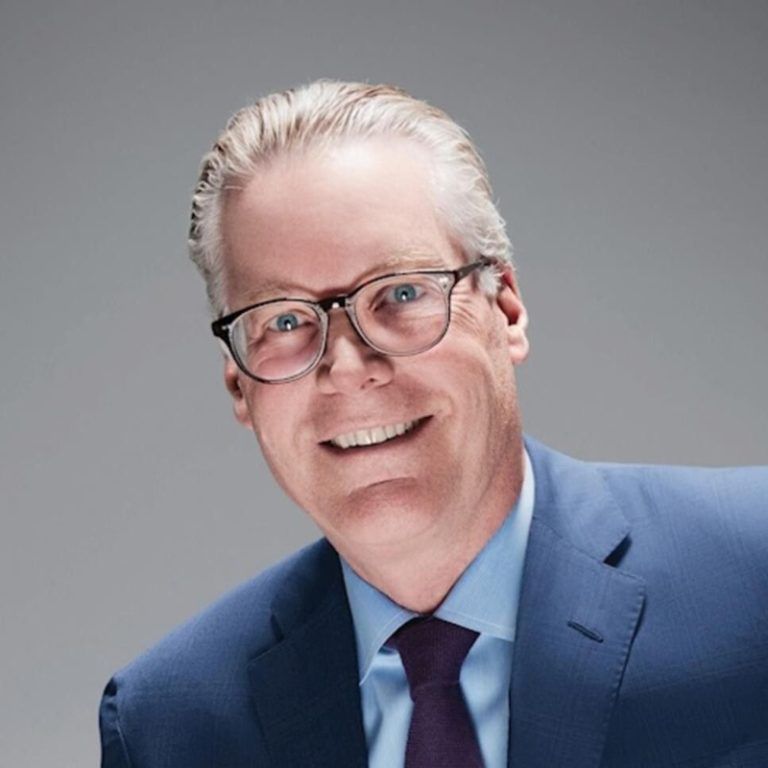
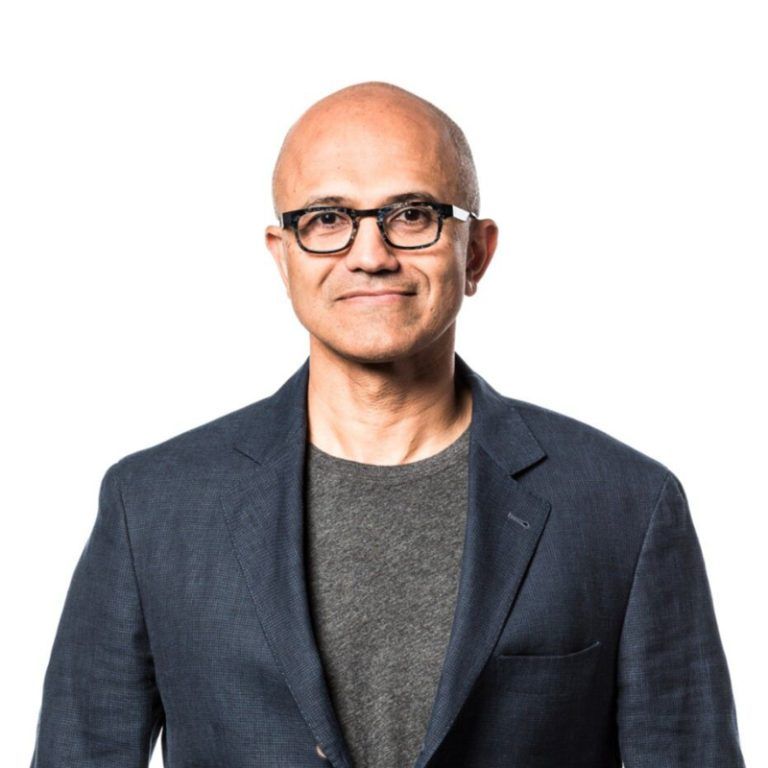

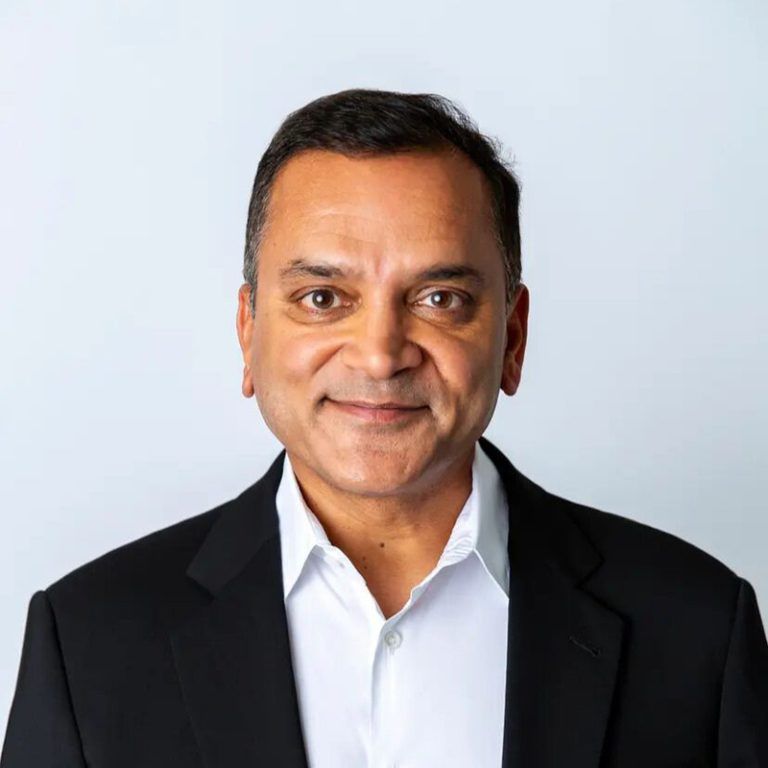
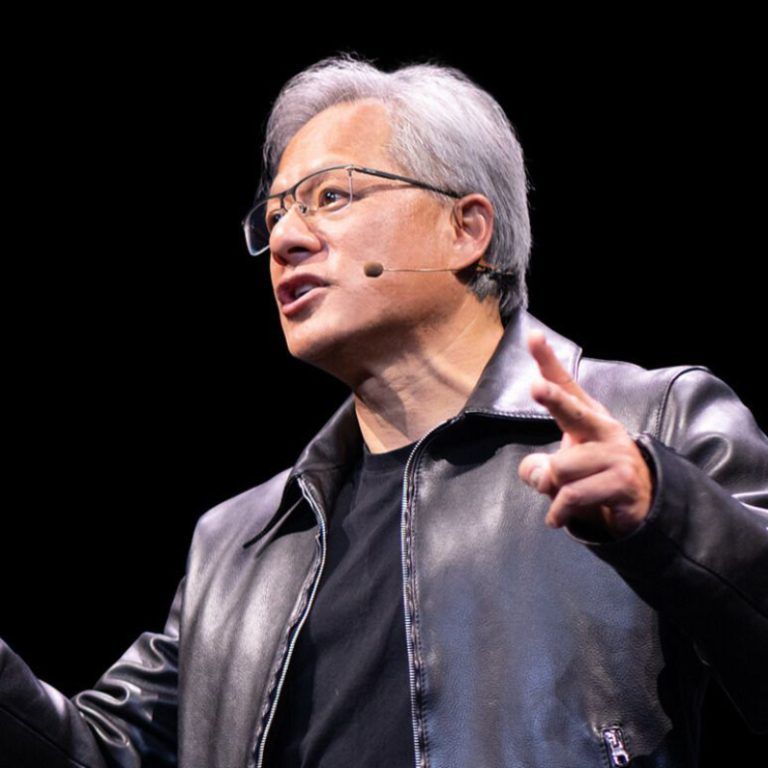
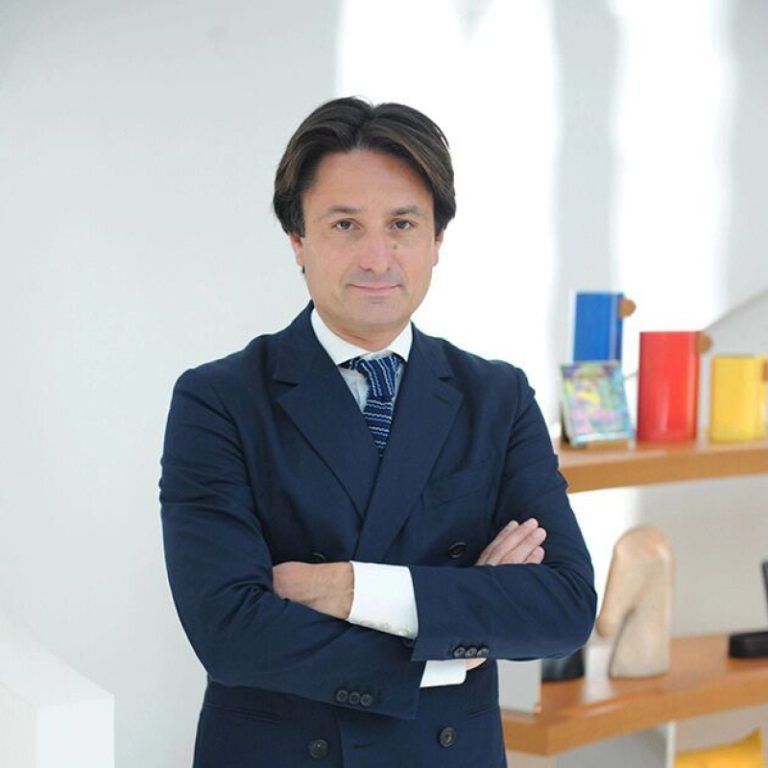
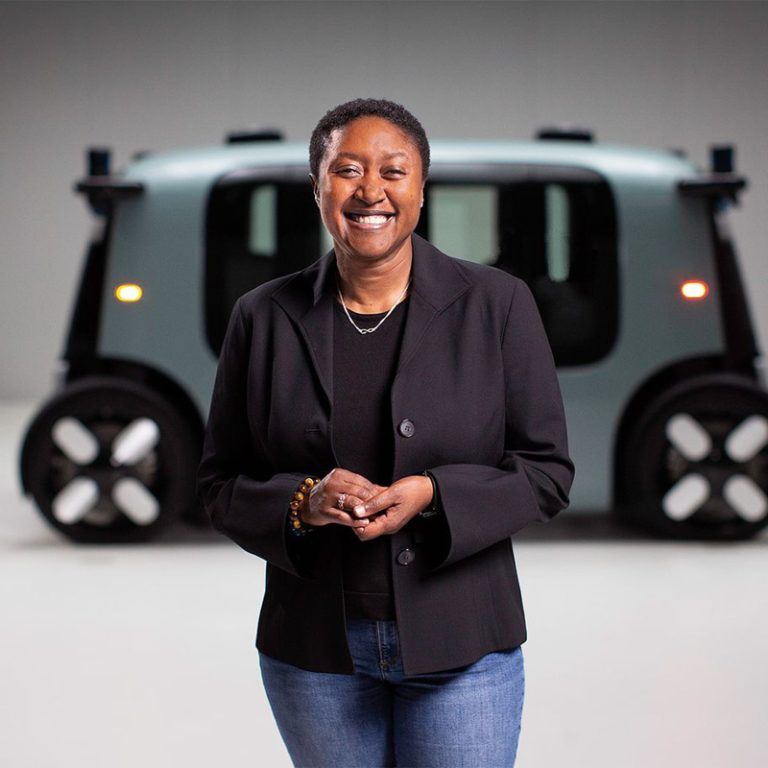
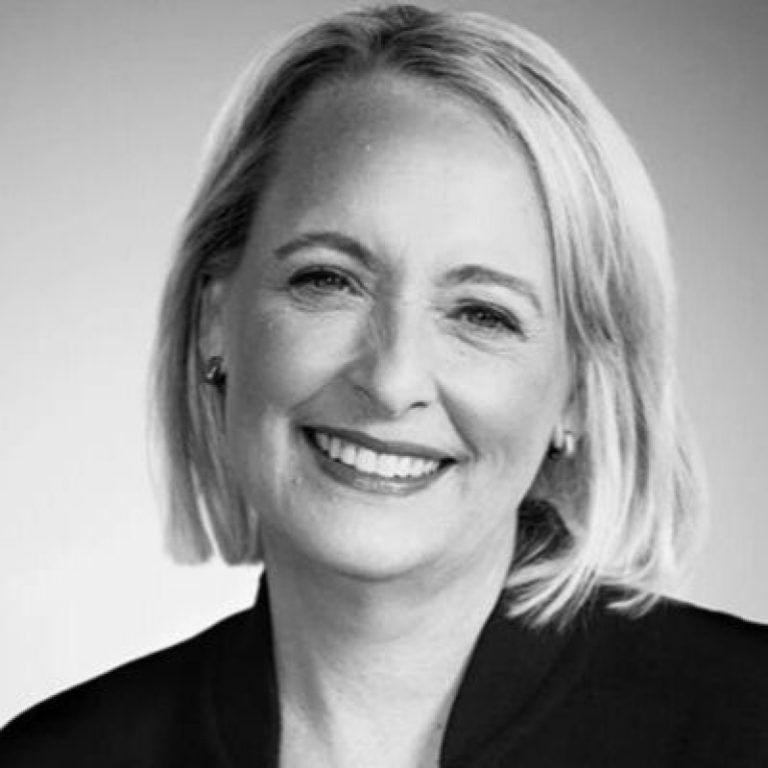
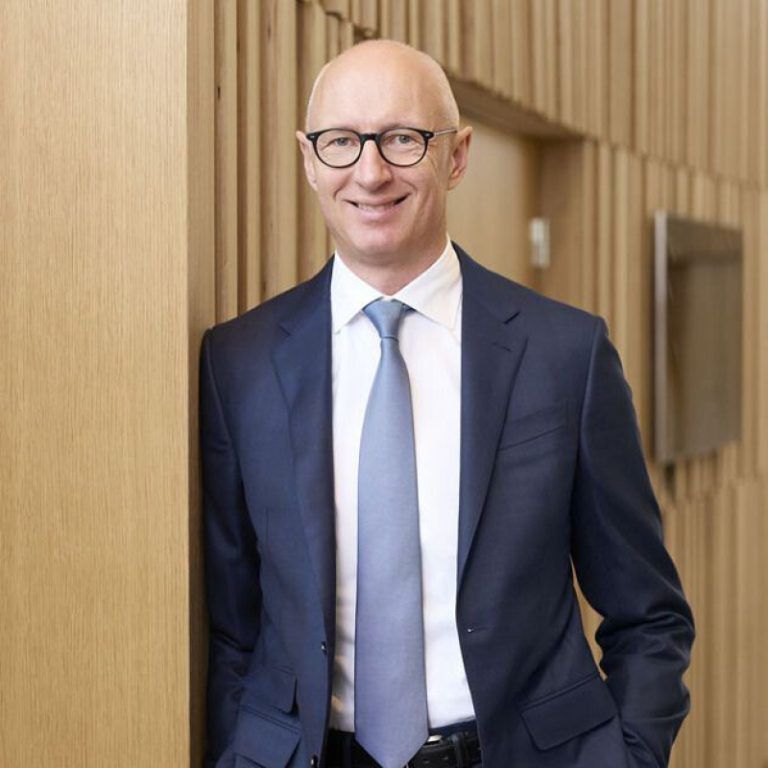
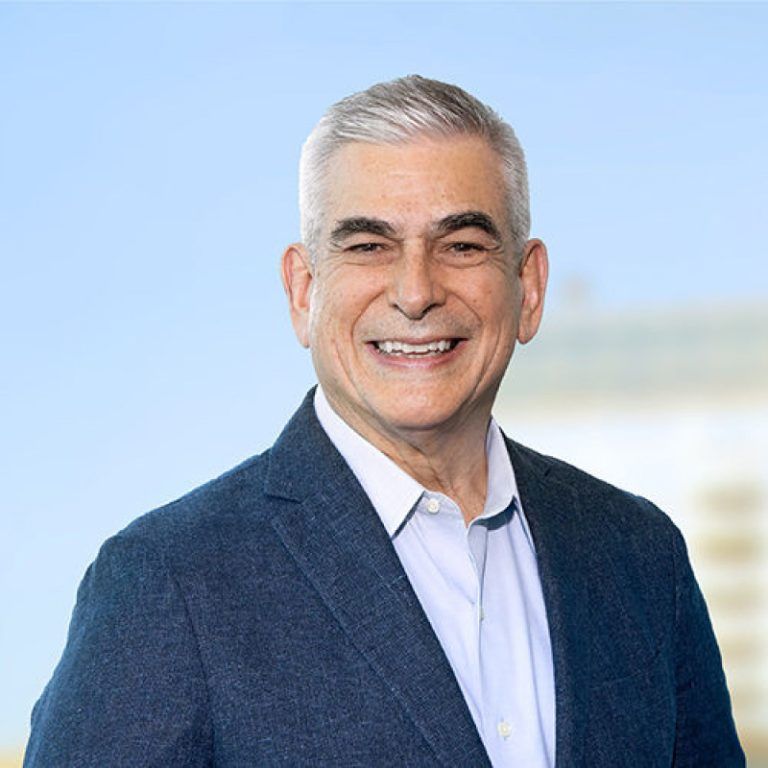
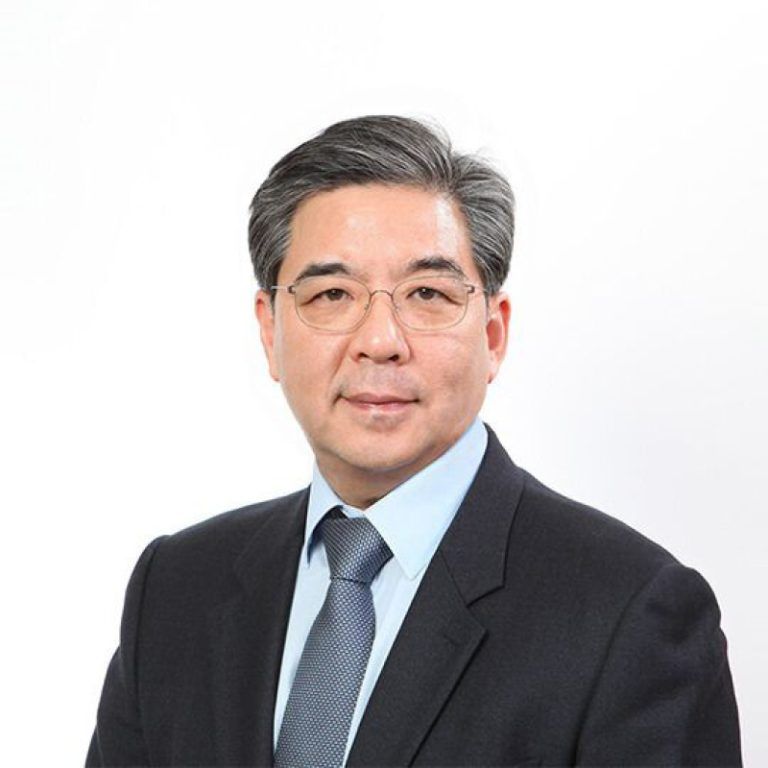
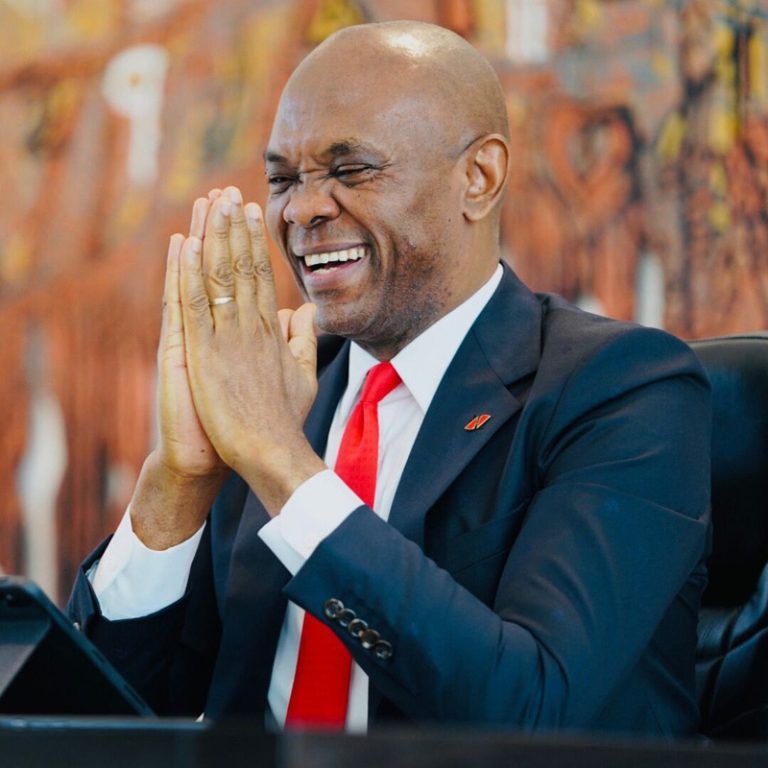
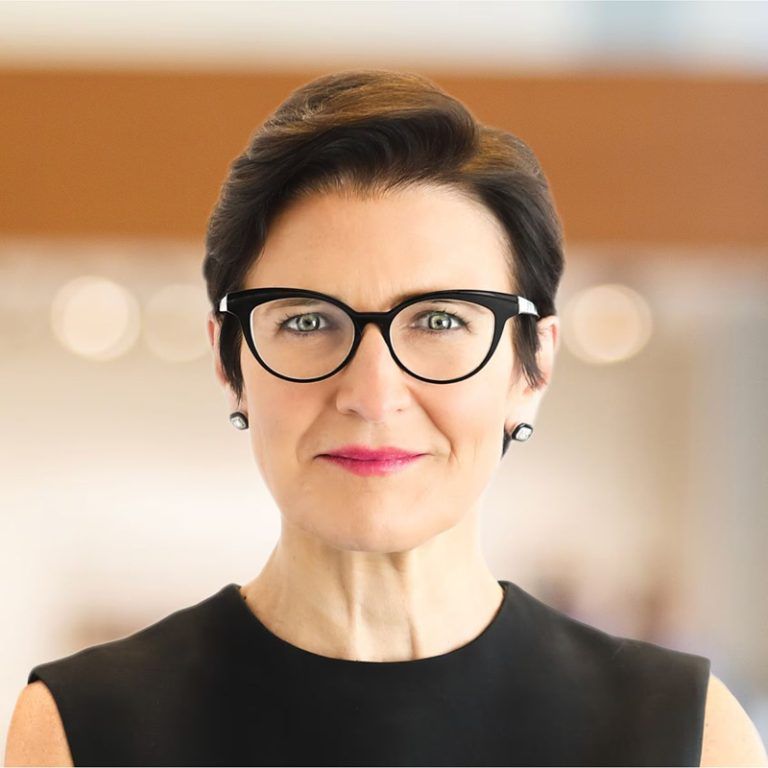
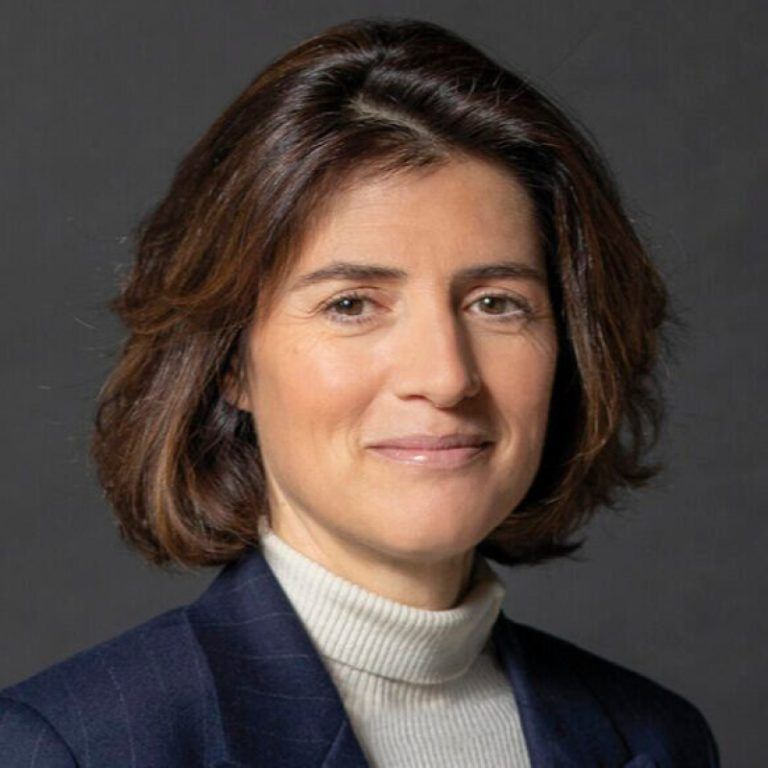
Which leaders inspire you? Every two years Thinkers50 asks this question of the hundreds of thinkers in its community of world-leading management thinkers. The result is the Leaders50, a unique and compelling listing of 50 inspiring leaders drawn from around the world.
Leaders50 provides a bridge between thinkers and practitioners. All the leaders featured in Leaders50 are currently active leaders in organisations. These organisations are significant in scope and/or impact. They may be for profit or not-for-profit, but must be independently financially viable.
Leaders50 aims to ignite a global conversation about what twenty-first century leadership can and should be. It celebrates and enables better understanding of the inspiring leadership practice and philosophies of leaders who are making a positive impact in the world. Through this Leaders50 contributes to the development of the next generation of leaders worldwide and to the impact of great leadership.
“The Leaders50 recognition highlights individuals who lead not only with their heads but also with their hearts, redefining leadership to inspire others to follow.” – Dan Pontefract on Forbes
Leaders50 is based on clear criteria which assess leadership achievement. The criteria has been developed in partnership with some of the world’s leading thinkers.
We define leadership as inspiring purposeful action that achieves remarkable outcomes.
The criteria are shared with members of the global Thinkers50 Community of thought-leaders. They are then invited to nominate the thinkers who inspire their own thinking and work. This provides a powerful connection from thinking to practice and vice versa. Nominations are then researched and vetted against the criteria above by the Thinkers50 team alongside Community members.
Which leaders inspire you? Every two years Thinkers50 asks this question of the hundreds of thinkers in its community of world-leading management thinkers. The result is the Leaders50, a unique and compelling listing of 50 inspiring leaders drawn from around the world.
Leaders50 provides a bridge between thinkers and practitioners. All the leaders featured in Leaders50 are currently active leaders in organisations. These organisations are significant in scope and/or impact. They may be for profit or not-for-profit, but must be independently financially viable.
Leaders50 aims to ignite a global conversation about what twenty-first century leadership can and should be. It celebrates and enables better understanding of the inspiring leadership practice and philosophies of leaders who are making a positive impact in the world. Through this Leaders50 contributes to the development of the next generation of leaders worldwide and to the impact of great leadership.
Leaders50 is based on clear criteria which assess leadership achievement. The criteria has been developed in partnership with some of the world’s leading thinkers.
We define leadership as inspiring purposeful action that achieves remarkable outcomes.
The foundation elements of the Leaders50 are the leader’s contribution:
The second level of analysis is concerned with character:
The final element looks to the future and the ability of the leader to build a lasting legacy. In particular, we ask:
The criteria are shared with members of the global Thinkers50 Community of thought-leaders. They are then invited to nominate the thinkers who inspire their own thinking and work. This provides a powerful connection from thinking to practice and vice versa. Nominations are then researched and vetted against the criteria above by the Thinkers50 team alongside Community members.
EVERY OTHER YEAR IN NOVEMBER
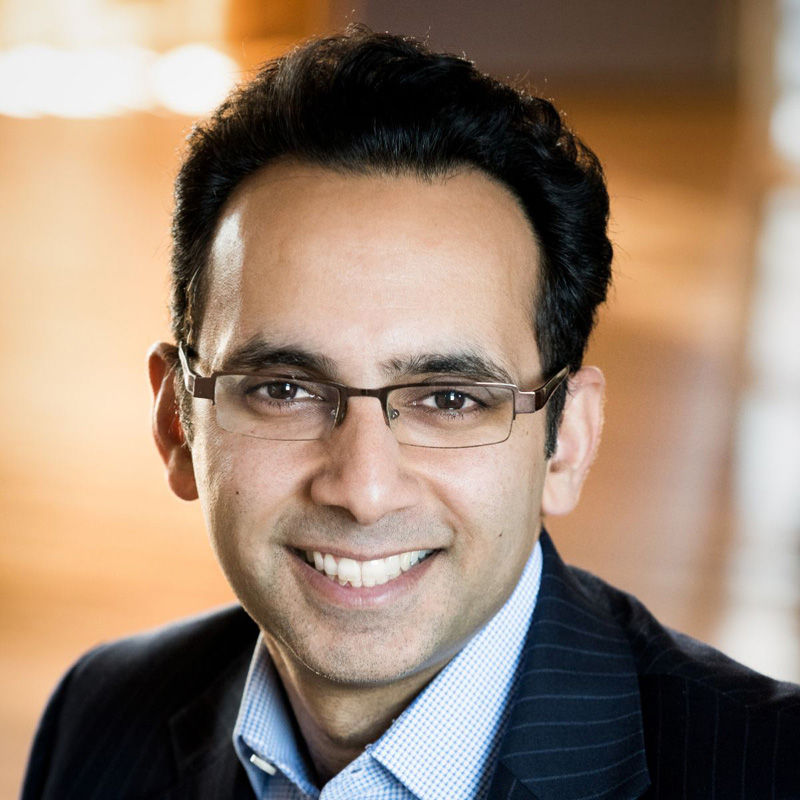
USA
Asheesh Advani is a lifelong social innovator and CEO of Junior Achievement Worldwide, where he has led transformative growth since 2015. Under his leadership, JA Worldwide has become one of the top ten most impactful NGOs globally and has been nominated for the Nobel Peace Prize. Through a vast network of programmes reaching 15 million young people each year, JA Worldwide equips future generations with essential skills in entrepreneurship, work readiness, and financial literacy, fostering economic and social empowerment on a global scale.
Asheesh’s leadership style emphasises empowerment and collaboration. Known for his coaching approach, he encourages shared goals, open communication, and inspires his teams through a ‘Fixed, Flexible, Freestyle’ framework, which he introduced to maintain alignment across JA’s global network. He also brings a strong background in entrepreneurship and is author of three books, offering guidance on business financing, leadership, and building a resilient, adaptable workforce. His latest, Modern Achievement, co-authored with Marshall Goldsmith, redefines success for young professionals, advocating for adaptability, continuous learning, and the importance of mentorship in a rapidly changing world.
Asheesh’s commitment to positive social impact is evident in his mission to build self-sufficient, financially savvy youth through education. By focusing on cultivating a growth-oriented mindset, he not only prepares future leaders to meet upcoming challenges but also advocates for socially responsible and sustainable economic progress. Through his vision, JA Worldwide continues to inspire and empower young people worldwide, leaving a legacy of leadership development and resilience that advances communities and transforms lives.
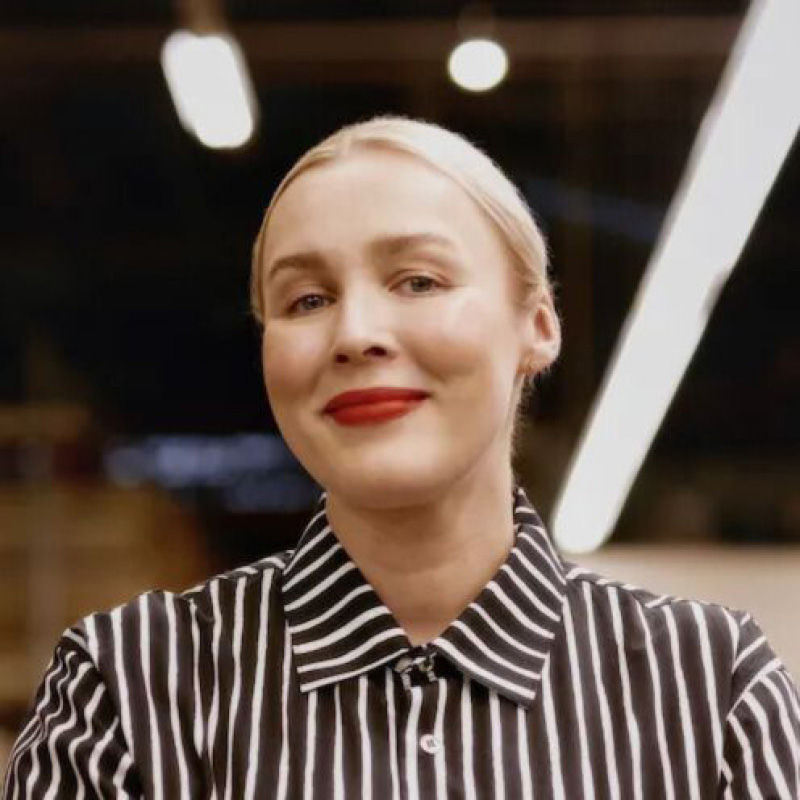
Finland
Tiina Alahuhta-Kasko, president and CEO of Marimekko, has been a driving force behind the Finnish lifestyle design company’s global growth and transformation. Her journey with Marimekko began early; she first joined as a summer intern, later conducted her master’s thesis on the brand, and officially became part of the team in 2005. With prior experience at Aalto University Student Union AYY and IMD Business School, Tiina brings a blend of academic insight and industry expertise to her leadership role.
Under Tiina’s direction, Marimekko has flourished, expanding to approximately 170 stores worldwide and an online platform serving 38 countries. Known for its distinctive prints and colours, Tiina has focused on innovating Marimekko’s operations and integrating continuous learning, guiding the company to adapt in a fast-changing industry while staying true to its iconic identity.
Tiina’s leadership is defined by a collaborative approach and an emphasis on resilience. She fosters a workplace culture that encourages ‘getting things done together,’ supporting creativity and inclusion. Her belief in courage, even at the risk of failure, inspires employees to take bold steps, see mistakes as growth opportunities, and remain true to Marimekko’s core values of fairness, common sense, and joy. In her own words, ‘leading is about building a diverse team with complementary competencies and empowering and supporting each individual to develop and succeed.’
Her recognition as Finland’s Transformation Leader in 2021 highlights her role as an influential figure in Finnish business. Tiina’s legacy at Marimekko is one of meaningful evolution, where heritage meets innovation, and courage drives continuous progress. Through her commitment, she ensures that Marimekko’s values resonate globally, making an enduring impact in the world of design.

USA
Tarang Amin has been the chairman and CEO of e.l.f. Beauty since 2014, where he has driven remarkable growth and innovation, transforming the company into a leader in diversity and sustainability within the beauty industry. Under his guidance, e.l.f. (standing for eyes, lips and face) went public in 2016 in one of the most successful beauty IPOs, and he has since expanded the business more than fivefold. Notably, e.l.f. Beauty’s board reflects Tarang’s commitment to inclusivity, being the only U.S. publicly traded company out of 4,100 with a Board of Directors that is 78% women and 44% diverse.
‘What I love doing the most is assembling high performance teams. I attribute my success to the ability to recruit, motivate, and create a high performance team culture,’ Tarang explains to Sanyin Siang of Duke University. His leadership is purpose-driven, results-led, emphasizing sustainable and ethical business practices. e.l.f. Beauty became the first company in the beauty sector with Fair Trade Certified™ manufacturing and operates entirely on renewable energy at its managed sites. The brand’s commitment to sustainability also includes initiatives to eliminate 400 tons of packaging waste annually and a goal to source 50% of all plastic packaging from recycled or responsibly sourced materials by 2030.
With over 30 years of experience, including leadership roles at Schiff Nutrition and Clorox, Tarang is known for his coaching style, inspiring high performance teams, and fostering an inclusive culture that mirrors e.l.f. Beauty’s diverse consumer base. He believes that beauty can be a force for positive change and leverages e.l.f. Beauty’s platform to inspire, empower, and advocate for socially responsible business practices. Through his leadership, Tarang is setting a new standard for corporate responsibility in the beauty industry, driving lasting impact and growth.

Ghana
Patrick Awuah Jr. is a visionary educator and leader who has significantly influenced African higher education through the founding of Ashesi University in Ghana. With a strong background in engineering and economics, Patrick’s journey began with a successful career at Microsoft. In 2002, he returned to Ghana, driven by a commitment to transform the region’s educational landscape and establish a university dedicated to academic excellence and ethical leadership.
Ashesi University, Patrick’s lasting contribution to African education, is recognised for its unique curriculum that combines rigorous academic standards with a focus on character development, critical thinking, and social responsibility. Under Patrick’s leadership, Ashesi has become a leading institution in Africa, equipping students with skills and values that extend beyond academics. By fostering a new generation of socially conscious graduates, Ashesi contributes positively to local and national economies, with alumni who work in fields that support Africa’s growth and address its unique challenges.
Patrick’s leadership style is marked by quiet resilience, empathy, and ethical commitment. He has cultivated a supportive, collaborative environment at Ashesi, inspiring students, faculty, and stakeholders alike. His work as an advocate for educational reform has earned him respect globally, inspiring others to pursue impactful careers in education and social enterprise.
Through Ashesi and initiatives such as the Education Collaborative, Patrick has established a model of transformative, values-based education that continues to influence institutions across Africa. His legacy is one of profound social impact, ensuring that future generations of African leaders are equipped to contribute positively to their communities and promote a more equitable, just society.
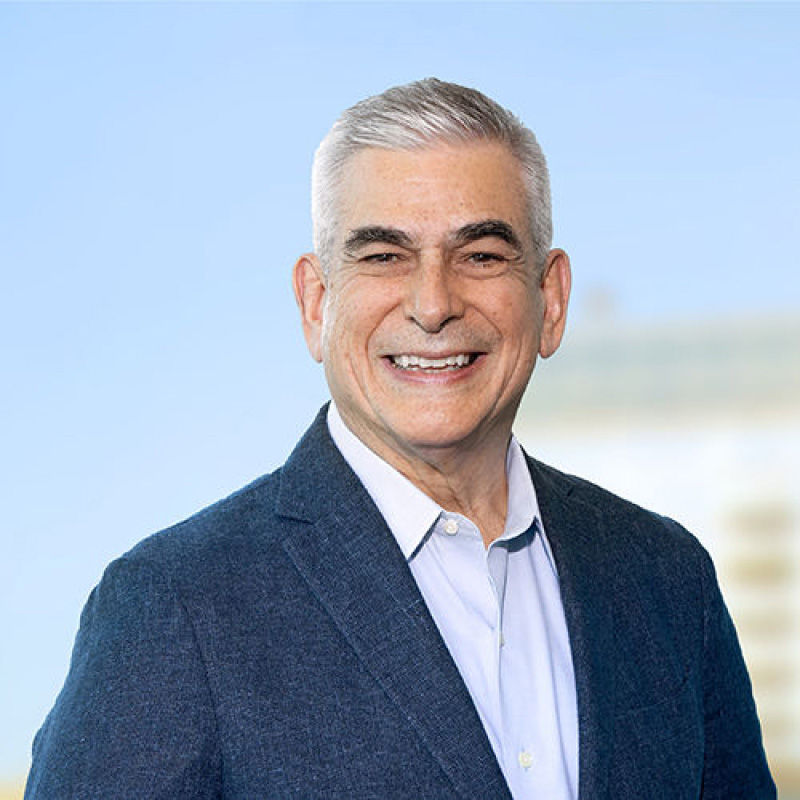
Philippines
Jaime Augusto Zobel de Ayala is a highly respected business leader in the Philippines, serving as chairman and CEO of Ayala Corporation, one of the country’s oldest and most diversified conglomerates. ‘Fondly known as JAZA, he has taken on the biggest issues of our time by building businesses that strengthen the social and environmental infrastructure of the Philippines and Southeast Asia. Ayala Corp operates the largest renewable energy network in Southeast Asia, provides affordable access to quality education, low-cost medicine, and technology in public schools,’ says Martin Gonzalez, co-author of The Bonfire Moment.
Jaime assumed leadership of Ayala Corporation in 1994 during a period of significant economic and political transformation in the Philippines. Under his leadership, Ayala Corporation has grown into a model of corporate responsibility and innovation, with diverse investments spanning real estate, telecommunications, banking, energy, infrastructure, healthcare, and education. His vision has steered the company towards sustainable growth, aligning business objectives with national development priorities and addressing pressing social challenges. Notable contributions include affordable housing initiatives, access to clean water for low-income communities, and educational opportunities for underserved students.
Jaime’s leadership style prioritises decentralisation and empowerment, fostering a culture of collaboration and responsibility within Ayala. His approach has enabled the corporation to navigate complex business landscapes while maintaining a focus on long-term sustainability. By promoting the integration of financial and sustainability reporting, he has encouraged Ayala’s emphasis on inclusive growth and environmental stewardship.
Beyond his corporate achievements, Jaime serves as a role model for ethical and impactful leadership. His dedication to social progress has earned him several national honours, including the Presidential Medal of Merit and the Philippine Legion of Honor. Through Ayala Corporation, Jaime has left a profound impact on Philippine society, illustrating how business can both drive economic success and address social and environmental challenges.
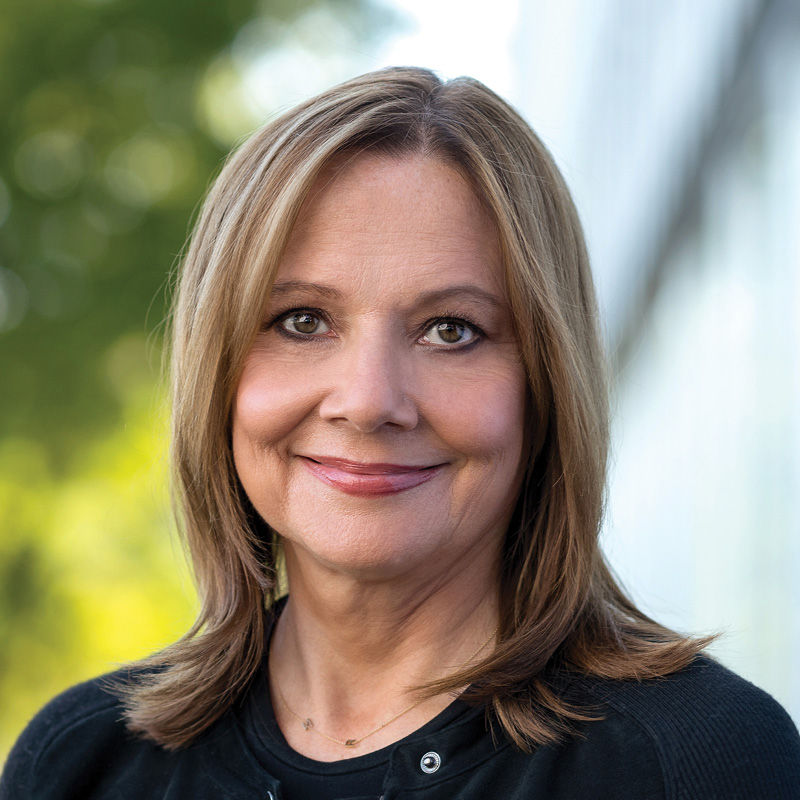
USA
Mary T. Barra has been CEO of General Motors (GM) since 2014, making history as the first female leader of the iconic automotive company and breaking barriers in a traditionally male-dominated industry. Her journey with GM began in 1980, when she joined as a co-op student in the Pontiac Motor Division. Over the years, she has held numerous executive roles. Her tenure as CEO has been marked by a transformative focus on innovation and sustainability, with a commitment to producing 1 million electric vehicles (EVs) by 2025 and driving advancements in autonomous technology.
Mary’s vision aligns with GM’s ambitious goal of achieving ‘zero crashes, zero emissions, and zero congestion,’ showcasing her dedication to creating a safer, greener planet. Known for her straightforward communication style, she fosters a culture of openness and accountability, encouraging frank discussions and collaboration among her teams. She also effectively uses social media to connect with employees and reinforce the company’s mission.
Mary’s commitment to diversity is evident in her ambition to make GM one of the most inclusive employers globally. She has also championed initiatives to enhance workplace inclusion, setting a new standard for equality within the corporate world. Her proactive response to challenging issues, including addressing safety concerns around a faulty ignition switch, highlights her strong ethical stance and commitment to customer safety.
Her impact extends beyond GM. As chair of the Business Roundtable and a board member at the Walt Disney Company, she shapes corporate governance and economic policy, leaving a legacy that not only redefines GM’s future but also the broader landscape of sustainable transportation and corporate leadership. ‘GM’s CEO is not afraid to change or of change – but there is humility and honesty as she approaches any change,’ summarises Dan Pontefract, author of Work-Life Bloom.

USA
Ed Bastian, CEO of Delta Air Lines since 2016, has been instrumental in transforming the airline into a global leader through a people-centred, customer-focused approach. With over 25 years at Delta, he has guided the company through significant challenges, including 9/11, bankruptcy, and the COVID-19 pandemic.
Under his leadership, Delta has pursued an ambitious expansion strategy, investing heavily in technology, fleet modernisation, and employee development. His vision has led to Delta becoming the most awarded airline in the U.S., recognised for reliability, operational excellence, and top-tier customer service. A central philosophy is the ‘virtuous circle’ of leadership, which prioritises employee welfare to enhance customer service and, consequently, strengthen business performance and investor returns. This people-driven model has positioned Delta as a trusted brand, with a global reach that contributes significantly to the local and global economy.
Ed’s leadership is defined by his commitment to sustainable success, with a focus on innovation, employee care, and customer loyalty. Known for his integrity and servant leadership, Ed’s style is built on honesty and transparency, fostering a culture of trust and collaboration within Delta. Through his leadership, Delta not only excels operationally but also serves as a model of resilience, reliability, and impactful leadership in the airline industry.
‘Ed Bastian embodies resilient, ethical, and transparent leadership,’ notes Modupe Akinola of Columbia Business School. ‘From his powerful perspectives on cultivating a team-first culture to his steadfast belief in sticking to your values no matter the cost, Ed’s consistent vision and focus on innovation has set new standards in the airline industry. Under his stewardship Delta Airlines has become the most awarded airline in the world…and for good reason. He is truly an inspirational leader.’
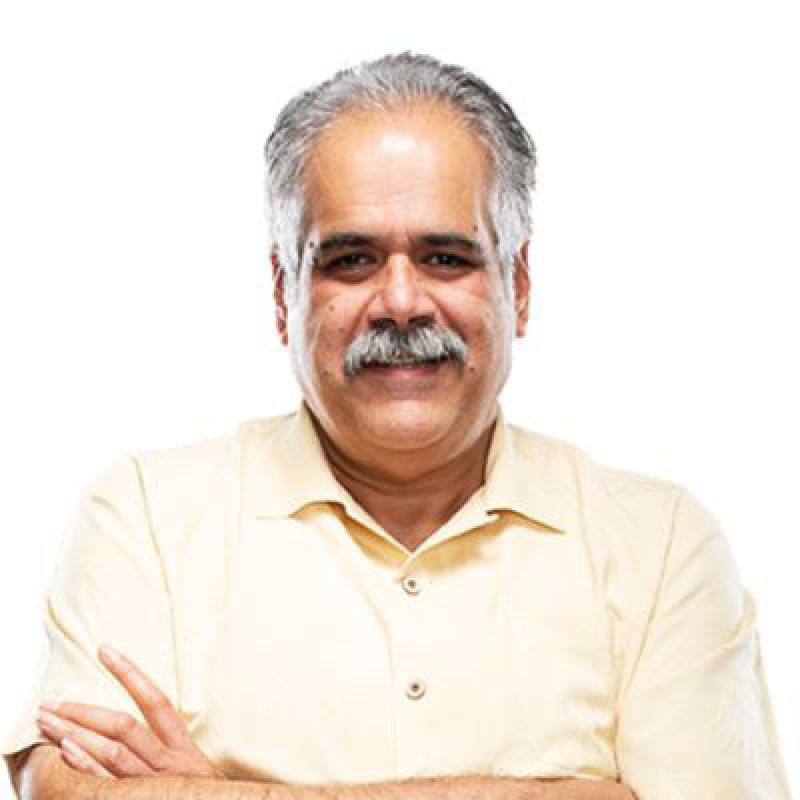
India
Rahul Bhatia is a pioneering figure in Indian aviation and the co-founder and managing director of InterGlobe Aviation, the parent company of IndiGo, India’s largest airline. Rahul founded InterGlobe Enterprises in 1989, embarking on a journey that would transform India’s domestic air travel. In 2006, he co-founded IndiGo, which quickly gained a reputation for operational efficiency, affordable fares, and customer satisfaction, becoming the airline of choice for millions of travellers in India and beyond.
Under Rahul’s leadership, IndiGo has expanded its fleet and network, consistently capturing a growing share of the market. His strategic focus on affordable and reliable air travel, combined with innovative partnerships with global aviation leaders, has positioned IndiGo as a dominant force in India’s aviation sector. Rahul’s recent decision to sell a 2% stake in InterGlobe Aviation to fund InterGlobe Enterprises’ hospitality and other businesses demonstrates his commitment to diversified growth and broader economic development.
Rahul is committed to Environmental, Social, and Governance (ESG) principles, with IndiGo taking meaningful steps to reduce its environmental footprint. The airline is ISO 14001 certified for environmental management and has earned gold status from EcoVadis for its sustainability performance. His dedication to promoting a safe, inclusive, and engaging workplace has made IndiGo a respected leader in employee wellbeing and diversity.
Rahul’s balanced approach to business growth and social responsibility has earned him a respected place in India’s business community, where he serves as a role model for ethical leadership. Through IndiGo and his broader ventures, he has left a lasting legacy, showing how responsible business practices can drive both economic growth and positive societal impact.

South Korea
Jaehoon (Jay) Chang, president and CEO of Hyundai Motor Company since 2020, has been pivotal in steering Hyundai’s journey towards sustainable mobility and clean energy. With a background focused on profitability and future mobility, Jay has ensured Hyundai’s financial resilience to support major investments in electric vehicles (EVs), hydrogen-powered solutions, and advanced battery technologies.
Under Jay’s leadership, Hyundai has substantially grown its electric vehicle range, including the expansion of the IONIQ brand, while pioneering advancements in hydrogen fuel cell technology. His vision brought to life the world’s first mass-produced hydrogen fuel cell electric vehicle (FCEV) in 2013, reflecting Jay’s commitment to sustainability and a zero-emission future. His leadership approach has successfully aligned the company’s commercial success with its dedication to societal wellbeing.
In his role as co-chair of the Hydrogen Council, Jay advocates for hydrogen as a global clean energy solution, promoting hydrogen adoption as a practical, scalable solution for reducing emissions. His focus on long-term, achievable targets fosters trust and alignment within Hyundai and beyond, inspiring wider industry standards and driving collaboration toward a sustainable future.
Jay’s legacy at Hyundai reflects a commitment to long-term environmental responsibility and practical innovation. His focus on sustainable technologies has strengthened Hyundai’s role in the global clean energy movement, with carbon neutrality goals set for 2045. Through this commitment, Jay has positioned Hyundai as a leader in the clean energy transition, supporting global efforts to reduce greenhouse gas emissions and contribute to sustainable economic growth. As Shane Cragun, co-author of The Leadership Code, summarises: ‘Jaehoon is a transformational figure in that he prioritises both Purpose and Profit equally and shows how a major auto manufacturer can be a force for good.’
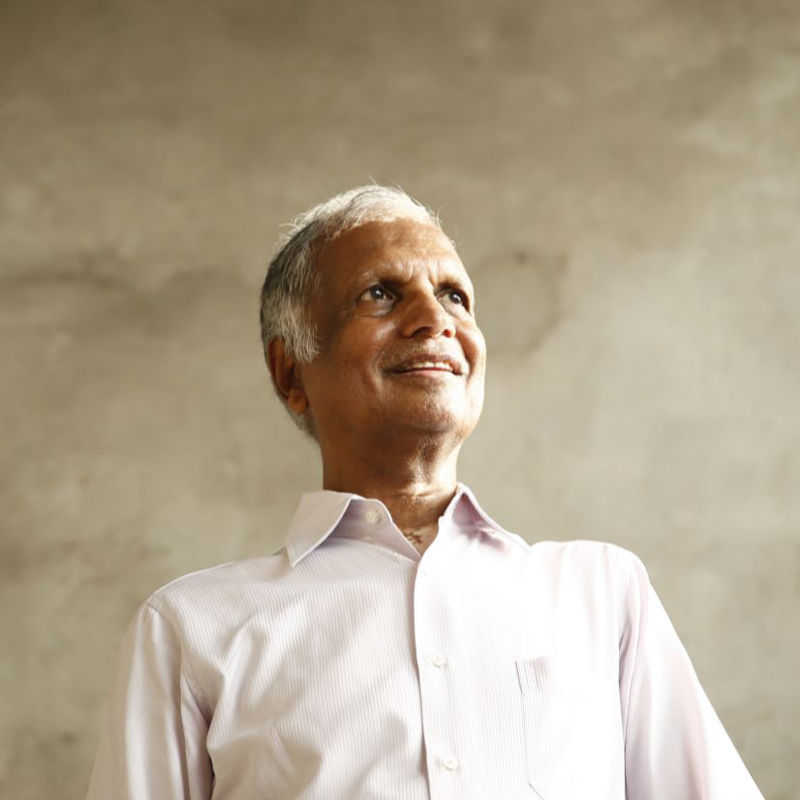
India
Nand Kishore (NK) Chaudhary, founder of Jaipur Rugs, is often referred to as the ‘Gandhi of the Carpet Industry’ for his transformative approach to business and social impact. Beginning in 1978 with two looms and nine artisans in Churu, Rajasthan, NK has grown Jaipur Rugs into a global enterprise that employs over 40,000 artisans across 600 villages in India, 80% of whom are women. His vision has positioned Jaipur Rugs as a leader in high-quality, hand-knotted rugs that seamlessly blend traditional Indian craftsmanship with modern design.
A strong advocate for social empowerment, NK has built Jaipur Rugs around the concept of ‘doorstep entrepreneurship,’ removing middlemen to allow artisans to receive fair wages and work from their homes. This model has not only preserved the dignity of the artisans but also provided economic stability within rural communities. His approach directly challenges traditional norms by working with tribal artisans, including those from disadvantaged backgrounds, to create sustainable livelihoods.
NK’s leadership style emphasises empathy and respect, fostering a unique ‘business ashram’ ethos that balances profitability with social responsibility. By focusing on worker welfare and community support, he has crafted a business that prioritises human dignity and ethical practice. ‘I didn’t start my journey assuming I would create a social enterprise. Every step I took was to ensure the welfare and wellbeing of my workers. When your workers are happy, they will do good work and that is good for business,’ he says.
The legacy of NK’s work is visible in the lasting impact Jaipur Rugs has on its artisan communities, particularly in terms of improved livelihoods and social inclusion. His commitment to combining craftsmanship with social purpose has not only revolutionised the rug industry but also set an example of how businesses can harmonise profit with meaningful, positive social impact.
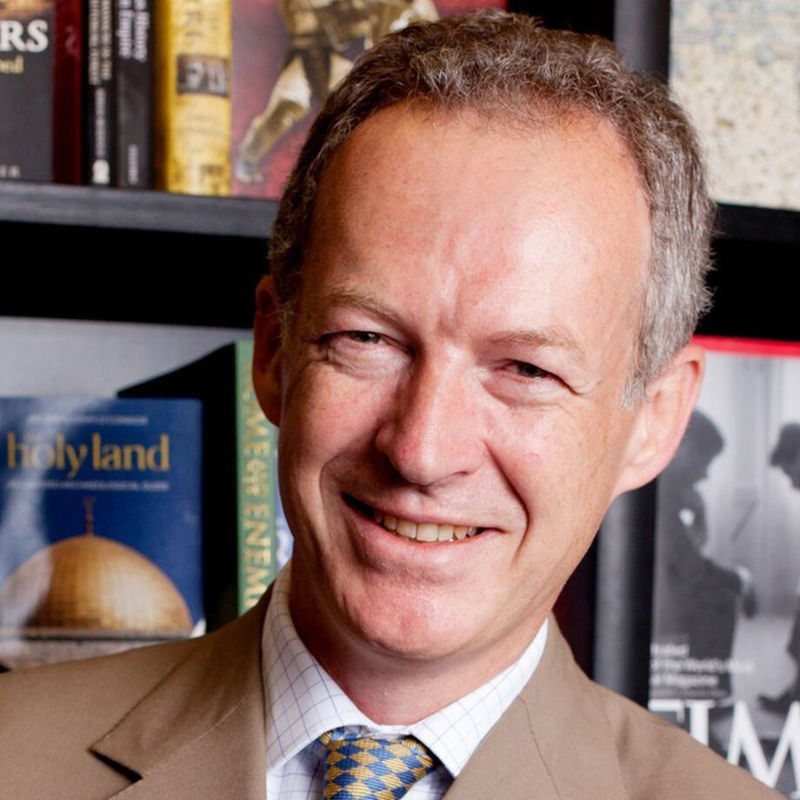
United Kingdom
James Daunt is the CEO of Barnes & Noble, the world’s largest retail bookseller. With his career rooted in the founding of Daunt Books, an independent bookstore in London in 1990, James went on to lead major bookselling chains, including Waterstones, before taking on the revitalisation of Barnes & Noble.
Under James’s leadership, Barnes & Noble has undergone a remarkable transformation, emerging from a period of decline to become a thriving enterprise once more. His approach to bookselling is both strategic and community-focused, empowering individual stores to curate book selections tailored to local interests. This emphasis on personalisation and human connection has successfully reshaped the role of bookstores, proving their continued relevance in the digital age. By positioning each store as a community hub, James has helped restore the charm and impact of physical bookstores, making them spaces for connection, curiosity, and learning.
James’s dedication to the written word and to fostering a love for reading has played a significant role in preserving bookstores as cultural institutions. His leadership style, grounded in trust and autonomy, empowers local teams to take ownership of their stores and respond creatively to their unique markets. This decentralised approach has fostered a strong sense of purpose and loyalty among employees, customers, and the wider literary community.
‘James Daunt shows what 21st century leadership looks like: give people the freedom and responsibility to serve their customers. By trusting and equipping local teams to run their stores as community bookshops rather than corporate outlets, he transformed Barnes & Noble from a failing chain into a thriving business. His example proves that the best leaders succeed not as controllers-in-chief, but as social architects,’ observes Michele Zanini, co-author of Humanocracy.

France
Pascal Demurger, CEO of MAIF, is a prominent advocate for corporate social responsibility and sustainable business in France. Beginning his career in public administration, Pascal worked with the Aquitaine regional audit office and the French Ministry of the Economy and Finance before joining MAIF in 2002. He became CEO in 2009, embarking on a transformative agenda that placed social responsibility and customer satisfaction at the heart of the organisation.
Under Pascal’s leadership, MAIF restructured to embrace a trust-based management approach, fostering employee empowerment and engagement. He guided MAIF to turn into a mission-driven company, making it legally committed to societal and environmental progress. This has redefined MAIF as a purpose-led company, dedicated to sustainable practices and ethical operations. Through his influence in the industry, Pascal has played a significant role in shaping sustainable policy, holding roles in organisations such as the Fédération Française de l’Assurance (FFSA) and the Groupement des Entreprises Mutuelles d’Assurance (GEMA).
Pascal’s commitment extends beyond MAIF. As a vocal member of the Impact France movement, he advocates for ecological and social transition through policy reforms, emphasising the role of businesses in addressing social inequality and climate change. His book, L’entreprise du XXIe siècle sera politique ou ne sera plus, calls for a new business model where companies actively engage with societal challenges.
Pascal’s legacy is that of a forward-thinking leader who has not only transformed MAIF but has also inspired the wider business community to prioritise purpose alongside profit. His work underscores the importance of sustainable practices, setting an example for businesses committed to creating a more equitable and responsible future. ‘Pascal Demurger is a rare CEO who believes businesses should become activists and militate for positive social change,’ concludes Navi Radjou, author of The Frugal Economy.
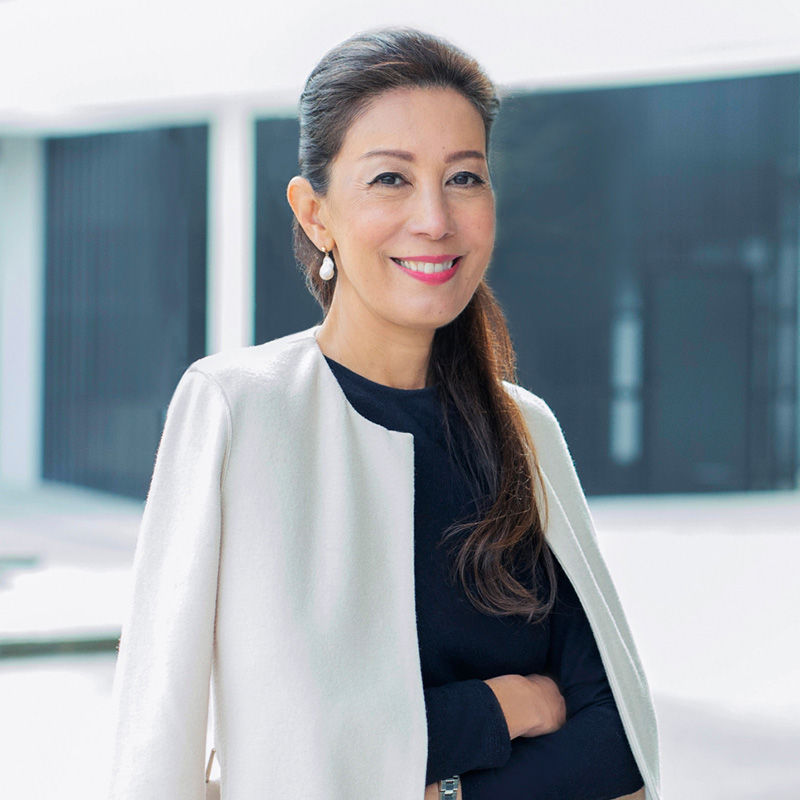
Germany
Saori Dubourg is the CEO of Greiner AG and a respected leader in the international chemical industry. She previously served on the Board of Executive Directors at BASF, the world’s largest chemical company, where she held key roles across sectors such as health and nutrition, agricultural solutions, plastics, petrochemicals, and life sciences. Saori’s global experience spans Europe, the USA, China, Japan, and Singapore, bringing a diverse and strategic perspective to her leadership.
Throughout her career, Saori has driven major mergers, acquisitions, and divestitures, demonstrating a keen ability to foster growth and resilience within large organisations. At BASF, she was responsible for various businesses leading up to 28 bn Euro of turnover and chaired the sustainability committee, helping position BASF as a leader in sustainable business practices. Her focus on innovation and her commitment to responsible growth have been instrumental in BASF’s success.
Saori’s dedication to sustainability extends beyond her corporate roles. She has been an active member of the German Federal Government’s Council for Sustainable Development and the steering committee of the Impact Taskforce, founded under the British G7 presidency. In these roles, she has promoted sustainability initiatives that contribute positively to environmental and social wellbeing on an international scale.
Known for her principled leadership, Saori draws from her Japanese heritage, grounding her decision-making in strong ethical values. She is recognised as a role model in the industry, with a stance on preserving European competencies in industrial negotiations, earning her respect and visibility.
Saori’s legacy is one of impactful leadership in the chemical industry, blending strategic growth with a firm commitment to sustainability. Her work continues to influence the industry, inspiring future leaders to prioritise sustainable practices and ethical responsibility in their pursuits.
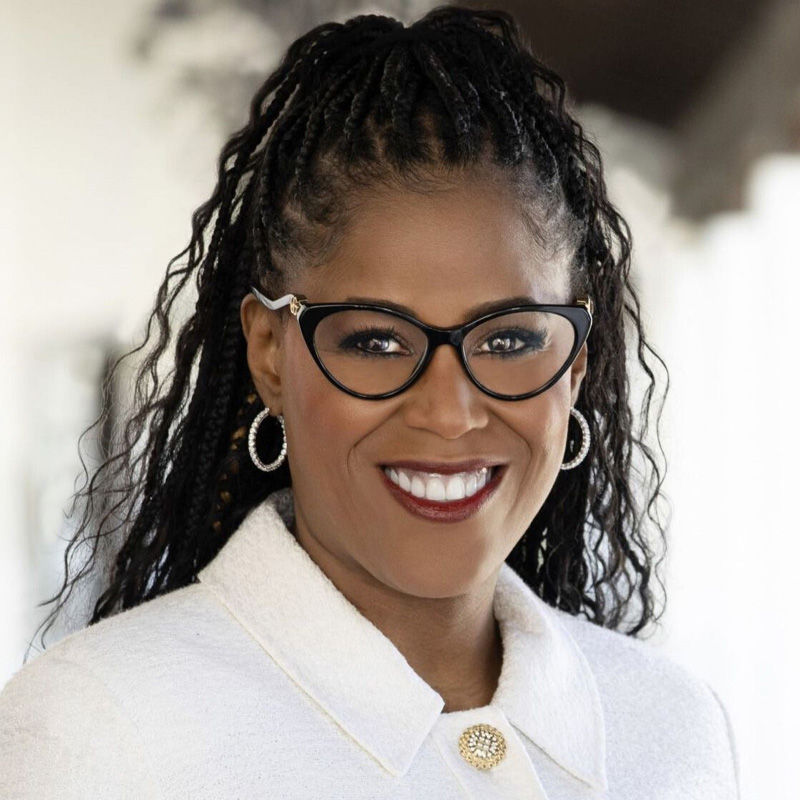
USA
Thasunda Brown Duckett, president and CEO of TIAA, is recognised for her dedication to financial inclusion and her efforts to address the retirement wealth gap. Since joining TIAA in 2021, she has expanded the organisation’s mission to support all Americans, with a particular focus on women and people of colour. Her work builds on extensive experience as CEO of Consumer Banking at JPMorgan Chase and director of emerging markets at Fannie Mae.
‘People may see your glory; they don’t know your story. Hard work, perseverance, grit, fear, doubt, confidence. All of that stirred up got you to this point,’ she told the Professional Troublemaker podcast. Growing up in a modest household in Texas, Thasunda’s own experiences with financial insecurity have shaped her commitment to ensuring that underserved communities have access to financial education and retirement savings opportunities. Under her leadership, TIAA launched the ‘Retire Inequality’ campaign, which raises awareness of disparities in retirement savings – starting with the 30% savings gap between women and men and extending to address systemic barriers affecting Black Americans and other minority communities.
Thasunda has become a strong advocate for employers to offer accessible retirement plans and provide employees with tools to prepare for their financial futures. She is also a proponent of public-private collaboration, supporting initiatives such as the SECURE Act, which expanded opportunities for workers to save for a secure retirement.
Her leadership style is grounded in purpose and values, with an emphasis on equality and opportunity. ‘Thasunda Brown Duckett delivers a daily masterclass in building trust and empowering the people around her. She’s at the top of the list of leaders who get it, who understand what it means – and what it takes – to bring an organisation’s values to life in enduring ways,’ says Anne Morriss, coauthor of Move Fast & Fix Things.

France
Axel Dumas, a sixth-generation member of the Hermès family, has served as CEO of Hermès International since 2014, preserving the brand’s heritage while guiding it toward sustainable growth. With a background that includes studies in philosophy, law, and management, Axel’s path to leadership began outside the family business as an investment banker at Paribas. Since joining Hermès in 2003, he has been instrumental in maintaining the company’s independence by preserving family control through shareholder agreements until 2033.
Under Axel’s leadership, Hermès has achieved impressive growth, with operating income reaching €2 billion and net profit increasing by 15 percent in 2018. He has expertly balanced the brand’s tradition of craftsmanship with strategic expansion, opening new stores worldwide and growing production capacity while upholding Hermès’ exclusivity. Notably, the brand’s commitment to limited production and waitlists for iconic items like Birkin bags has reinforced its luxury status.
Sustainability is central to Axel’s vision for Hermès. The brand prioritises responsible sourcing, quality, and durability, catering to a younger generation and driving the secondhand market. His leadership is characterised by a blend of toughness and romanticism, valuing tradition while embracing strategic innovation. He has instilled a humanistic leadership approach within Hermès, fostering a positive work environment and promoting employee engagement. He has implemented initiatives to make employees shareholders, introduced profit-sharing schemes, and fostered a familial atmosphere, which has contributed to Hermès being ranked among the most attractive employers in France.
Axel’s legacy at Hermès lies in his dedication to preserving cultural heritage and championing responsible luxury. His leadership combines financial success with sustainable practices, creating a future-focused brand that respects its traditions and values its people, setting an example of purpose-driven leadership in the luxury industry.
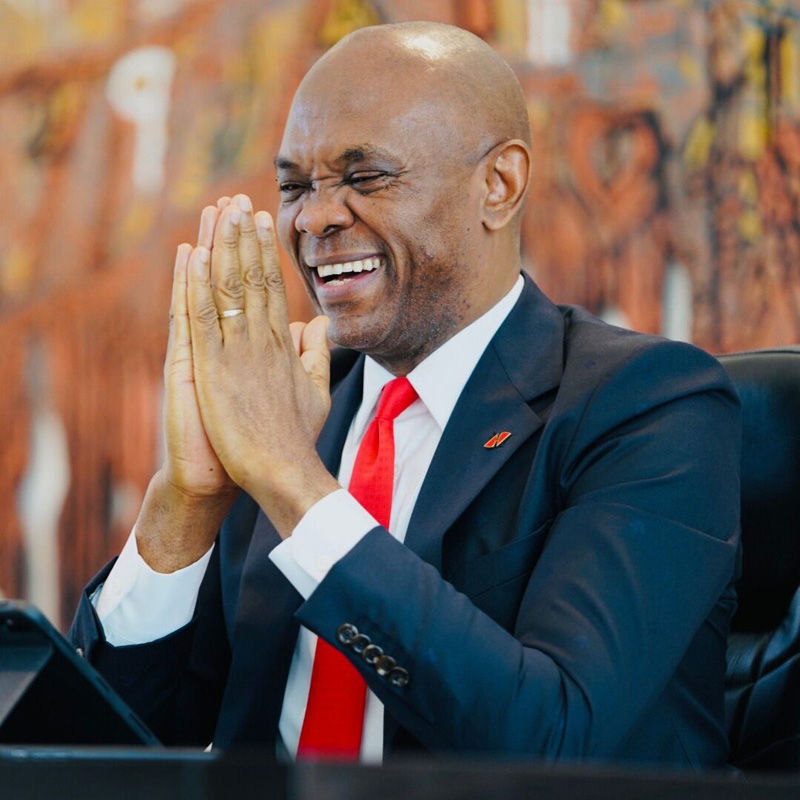
Nigeria
Tony O. Elumelu is the founder and chairman of Heirs Holdings, an African investment company committed to transforming Africa through strategic investments in critical sectors including financial services, energy, healthcare, and technology. Tony is also the founder of The Tony Elumelu Foundation (TEF) and chairs several companies, such as Heirs Oil & Gas, an upstream company with substantial energy assets in Nigeria. Through his leadership, he aims to contribute to Nigeria’s infrastructure and economy and add value to Africa’s natural resources, enhancing energy security and economic stability.
Tony’s legacy is rooted in his Africapitalism philosophy, which champions the role of entrepreneurs and the private sector in driving Africa’s social and economic development. His social commitment is evident through TEF, which has empowered nearly 10,000 young African entrepreneurs with a 10-year, $100 million programme that offers training, mentorship, and funding. As Tony stated in a 2021 keynote: ‘We now have, as a continent, the largest young generation in history – this youthful population is Africa’s hope, it is our pride and it is our potential. The urgency and need to unlock the potential of this generation is imperative for the security of our collective future.’ His impact has empowered thousands of young Africans, equipping them to contribute to their communities and economies.
Known for his long-term vision and focus on shared prosperity, Tony’s approach to leadership centres on impactful investments and social responsibility. His work has positioned him as a role model, inspiring future generations of African entrepreneurs and leaders. Through his foundation and business endeavours, Tony’s legacy will continue to shape Africa’s economic landscape, fostering entrepreneurship, resilience, and sustainable development across the continent.

USA
Aichatou Sar Evans, professionally known as Aicha Evans, is the CEO of Zoox, Amazon’s self-driving car subsidiary, and a pioneering figure in the autonomous vehicle industry. Born in Senegal and raised in Paris, Aicha was inspired by Marie Curie and driven by a vision to make a meaningful impact in technology. She immigrated to the United States to pursue her education. Her career includes engineering management roles at Rockwell Semiconductor, Conexant, and Skyworks Solutions, and a 12-year tenure at Intel, where she rose to chief strategy officer.
In 2019, Aicha became the CEO of Zoox and, in 2020, spearheaded the acquisition of Zoox by Amazon for $1.3 billion, securing significant resources for Zoox while ensuring it remained a standalone entity. Her strategic focus on patent coverage and innovation in mobility attracted Amazon’s interest and positioned Zoox as a leader in autonomous technology.
‘I had to learn success. I had to learn failure. And I’m naming both because how you handle both is very different. With success, it’s very important to remember that you don’t have a God-given right to it. It’s important to remain humble. It’s important to continue pushing yourself. And with failure, it’s important to be like, okay, I didn’t get here by mistake,’ she told Stanford GSB. Aicha’s leadership style is characterised by decisiveness, empowerment, and a heart-centred approach that emphasises inclusivity and vision. Her work at Zoox supports a future where autonomous vehicles can become a widespread, accessible resource, enhancing mobility solutions for society. As a role model, she inspires women and underrepresented groups in technology, demonstrating the impact of leadership rooted in purpose and innovation.
Aicha’s legacy lies in her transformative influence on the autonomous vehicle industry, her focus on making self-driving technology part of daily life, and her commitment to inclusive, impactful technology.
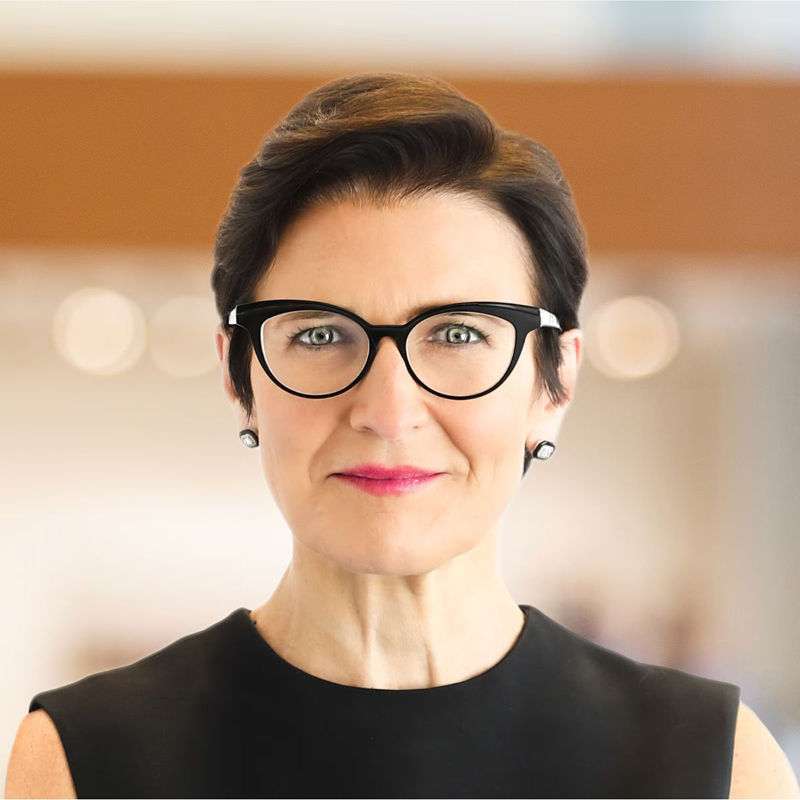
USA
Jane Fraser, CEO of Citigroup, made history in 2021 as the first woman to lead a major Wall Street bank. With a background in economics, she began her career as a junior analyst in mergers and acquisitions at Goldman Sachs and later joined McKinsey & Co. to focus on financial services strategy. She joined Citigroup in 2004, where she led critical divisions through challenging periods after the 2008 financial crisis.
As CEO, Jane embarked on a comprehensive restructuring plan for Citigroup, simplifying its management structure and removing non-core business segments to strengthen the focus on multinational clients. Her initiatives aim to enhance operational efficiency and client engagement, building a more sustainable foundation despite ongoing regulatory challenges. She is also leading Citigroup in efforts regarding sustainability and achieving the company’s net zero commitment. ‘Our global success will depend on maintaining energy security, increasing resiliency and sustaining economic opportunity around the world,’ she wrote on a Citi blog.
Jane’s leadership prioritises authenticity and straightforward communication, with a focus on building strong client relationships and empowering employees. In an industry often driven by rigid policies, Jane stands out for her empathetic leadership style. She promotes work-life balance, encouraging women to embrace their unique qualities in leadership roles. Her emphasis on flexibility has led to sensible policies at Citigroup, such as a return-to-office approach that adapts to business needs rather than strict mandates.
Jane’s impact extends beyond Citigroup, as her role has broken significant barriers in the traditionally male-dominated finance sector. Her legacy is one of resilience, authenticity, and transformative leadership, inspiring a new generation of leaders in finance. Through her efforts to create an inclusive, adaptive workplace and her strategic focus on Citigroup’s long-term success, Jane is redefining what it means to lead in global finance.
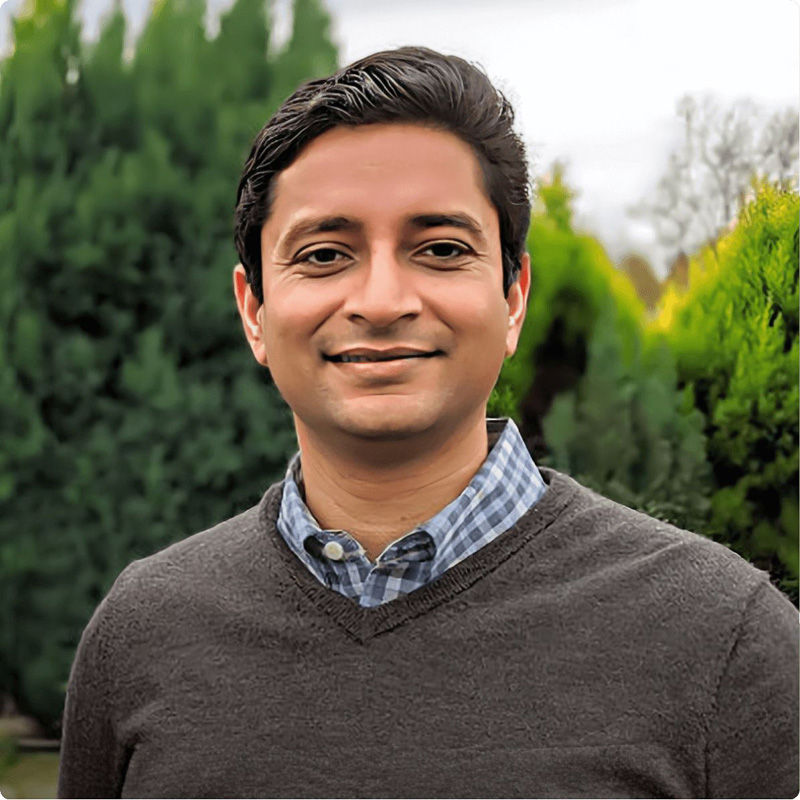
USA
Mohit Garg, CEO and co-founder of Oloid, is a visionary in workplace security and identity management. With an educational background in electrical engineering and business management, Mohit combines technical expertise with strategic insight. Through Oloid, Mohit has developed a platform that aims to transform workplace access by introducing software-based identity management, particularly focused on the growing segment of deskless workers. The platform provides a ‘single sign-on’ equivalent for physical access, enhancing security and connectivity while utilising existing hardware to minimise disruption and costs. Oloid has emerged as a crucial player in secure access solutions, enabling organisations to meet evolving compliance standards and adapt to hybrid work models.
Mohit’s leadership philosophy emphasises collaboration and decentralised decision-making, creating a leadership team that operates as peers and is empowered to innovate. He believes that his role as a CEO is to ensure strategic alignment in the business and challenge assumptions, not hold onto control. This has helped position Oloid as a responsive, agile organisation capable of adapting to the industry’s evolving needs.
Shane Cragun, co-author of The Leadership Code, provides a pithy summary: ‘Absolutely Mohit is an upcoming startup legend in Silicon Valley. He is on his second startup. The first one is a unicorn! It is now worth $1.5 billion and 850 people globally. His second startup is Oloid and is on the path to become another unicorn. What makes Mohit special is his inspired leadership. Everyone wants to be on his team. He focuses just as much on the soft (culture, leadership, morale) as the hard (gee-whiz products, tech).’

USA
Margo Georgiadis is CEO-partner at Flagship Pioneering, a venture creation firm focused on groundbreaking innovations in human health, sustainability, and biotechnology. She is also the co-founder and CEO of Montai Therapeutics, a biotech company using AI technology and human chemistry to develop innovative treatments for chronic diseases. Unlike many other treatments, Montai aims to treat more than just their symptoms and slow or event halt their progression. Combining technology with a human-centered approach, Margo leads the company to find solutions that are effective, personalised, and accessible. Margo’s leadership in biotech reflects her dedication to blending technology and healthcare solutions to address some of the world’s most pressing health challenges.
‘Margo Georgiadis is a rare leader – she’s operationally excellent and visionary. From Google to Ancestry and now to breakthrough healthcare innovation at Montai Health, she drives results through data-driven decision-making while leveraging deep emotional intelligence. She has a prodigious intellect and a firm grasp of the future, yet remains well-grounded. An exceptional, transformative leader,’ says Whitney Johnson.
Margo is also an advocate for women in STEM, actively supporting initiatives like Girls Who Code and Made with Code to inspire young women to pursue careers in technology. Her commitment to gender diversity and inclusion has made her a role model, especially within the technology and biotech sectors.
Margo’s leadership is recognised for being both operationally excellent and visionary, balancing data-driven decision-making with emotional intelligence to drive transformational change. Her commitment to innovation and social responsibility has fostered strong relationships with stakeholders, from employees and consumers to corporate boards and the larger community. Margo’s legacy will continue to shape the future of biotech, healthcare, and technology, demonstrating how visionary leadership and social commitment can drive impactful change in business and society.

South Africa
Adrian Gore is a South African entrepreneur and the founder of Discovery Limited, a multinational financial services group he established in 1992. Under his leadership, Discovery has expanded its impact to over 25 million people across 22 countries, transforming the healthcare and financial services sectors with innovative wellness and insurance solutions. Adrian’s commitment to promoting healthier lifestyles led to the development of Vitality, a wellness programme that uses behavioural economics to encourage positive health behaviours. Vitality has been recognised for its success in reducing healthcare costs while improving public health outcomes, positioning Discovery as a global leader in wellness-driven insurance.
Adrian’s vision extends beyond traditional healthcare, integrating financial wellbeing with programmes like Vitality Money, which rewards individuals for managing both their financial and physical health. His work has had a significant economic impact, helping to reduce healthcare costs and promoting financially responsible behaviour. Discovery’s growth and expansion into new markets have also contributed to economic development within the healthcare and financial services sectors globally.
In addition to his role at Discovery, Adrian is a vocal advocate for social change in South Africa, supporting private-public partnerships and entrepreneurship as tools for addressing socio-economic challenges. He is actively involved in global health initiatives, including collaborations with the World Health Organization. ‘I am known for repeatedly making the call for positive leadership to liberate our country’s incredible potential. What fascinates me is the criticism I receive for my naivety, given the challenges we face,’ he reflected in a Discovery article.
Adrian is recognised for his strategic foresight and a proactive focus on wellness, enhancing organisational culture and impact. His work continues to reshape healthcare and financial services, promoting the integration of wellness into business and inspiring a new generation of leaders to prioritise public health.
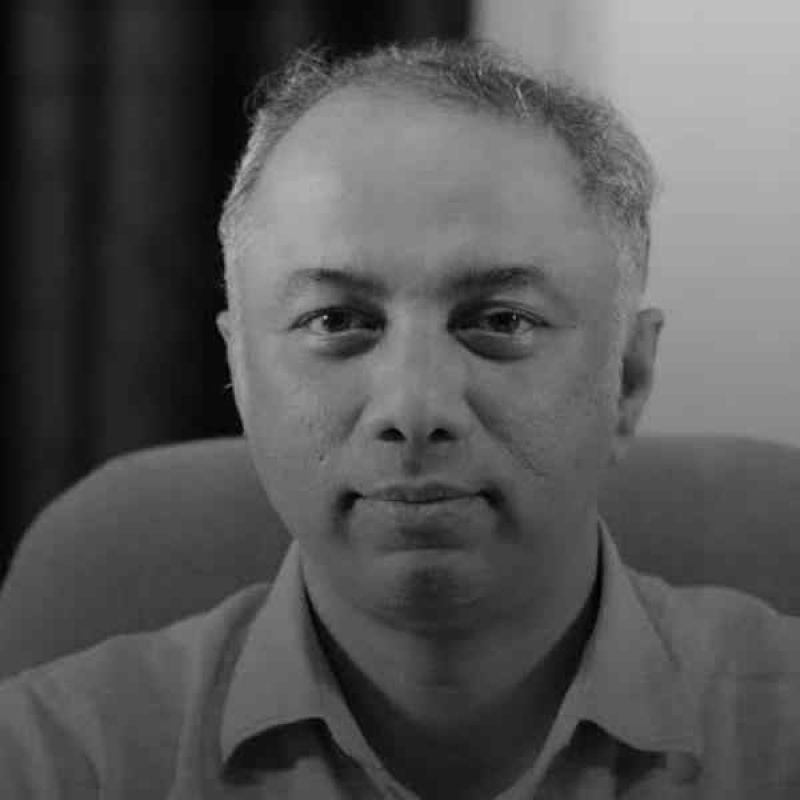
India
Harish Hande is a pioneering social entrepreneur and co-founder of the Solar Electric Light Company (SELCO), an organisation dedicated to tackling energy poverty in India. His journey into solar energy advocacy began after a visit to the Dominican Republic, where he observed the severe impacts of poverty and identified renewable energy as a viable solution for underserved communities.
Founded in 1995, SELCO has installed over 95,000 solar photovoltaic systems, providing affordable and reliable energy to more than 400,000 people across southern India. Under Harish’s leadership, SELCO customises its solutions to meet the specific needs of each client, often in low-income households, ensuring accessibility while promoting sustainability. Recognising the financial barriers many clients face, Harish has facilitated partnerships with credit cooperatives and local banks to offer financing options, empowering individuals to adopt solar energy without overwhelming financial burdens.
Harish’s work goes beyond energy access to foster economic empowerment, particularly among women. By enabling clients to leverage solar energy to start small businesses, SELCO promotes entrepreneurship and financial independence. His efforts have also contributed significantly to environmental sustainability, furthering social and environmental objectives simultaneously. He is known for his leadership approach that focuses on social, environmental, and financial sustainability, with an ambitious goal to create equal opportunities for those living in poverty to realise their intellectual potential.
Harish’s commitment to addressing energy poverty has earned him significant recognition, including the 2011 Ramon Magsaysay Award. His leadership, marked by empathy and a dedication to innovation, serves as an inspiring example of how renewable energy can drive social change, proving that sustainable technology can play a key role in poverty alleviation and community empowerment. Through his work, Harish has demonstrated that modern energy solutions are not only affordable but transformative for underserved communities.
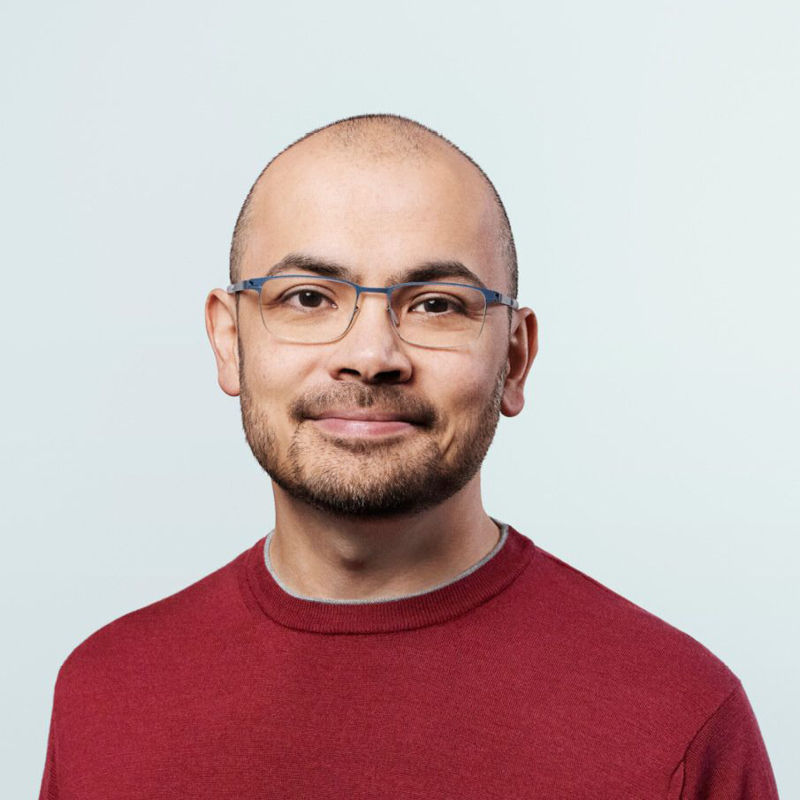
United Kingdom
Demis Hassabis is the co-founder and CEO of DeepMind, renowned for his pioneering work in artificial intelligence, neuroscience, and technology. With a background in computer science and cognitive neuroscience, he created a foundation that uniquely positioned him to innovate at the intersection of AI and neuroscience. As a testament to his work, he shares the 2024 Nobel Prize in Chemistry for protein structure prediction with John Jumper and David Baker.
Under Demis’s leadership, DeepMind has made groundbreaking strides in AI research, including the creation of AlphaGo, the first AI to defeat a human world champion in the game of Go, and AlphaFold, which solved one of biology’s most challenging problems by accurately predicting protein structures. These advancements, which have implications for fields from healthcare to climate science, underline DeepMind’s commitment to solving complex global issues through AI.
The organisation’s impact is further evidenced by over 1,000 research papers, establishing DeepMind as a leader in AI thought and application. Connecting AI and science, Demis reflected in his Nobel interview: ‘The reason I’ve worked on AI my whole life is that I’m passionate about science and finding out knowledge, and I’ve always thought if we could build AI in the right way, it could be the ultimate tool to help scientists, help us explore the universe around us.’
Demis’s leadership style combines scientific vision with ethical responsibility, advocating for AI’s development as a force for social good. His work has inspired confidence in AI’s potential while reinforcing the importance of responsible technological progress. Recognised internationally, Demis’s legacy lies in advancing AI in ways that meaningfully address societal challenges, setting a benchmark for ethical and transformative innovation in the field of artificial intelligence.

France
Christel Heydemann is the CEO of Orange Group, a leader in telecommunications known for her focus on innovation, strategic transformation, and digital advancement. In 1999, Christel joined Alcatel, where she progressed through several leadership roles, gaining valuable experience in navigating complex organisational change during the Alcatel-Lucent merger.
In 2014, Christel moved to Schneider Electric, where she promoted IoT solutions and strategic partnerships, ultimately serving as executive vice president of Europe operations. Her work there emphasised collaboration and innovation, preparing her for her current role at Orange Group. Appointed in 2022 as the first female CEO of the company, Christel’s leadership marks a significant step toward greater diversity and inclusion in corporate leadership.
At Orange, she has launched the ambitious ‘Lead the Future’ strategic plan, which integrates artificial intelligence and automation to drive operational efficiency and enhance customer experiences. Under her guidance, the company implemented 146 high-impact AI initiatives and robotic process automation, saving 500,000 hours of work in repetitive tasks. Christel’s vision also prioritises sustainability and social responsibility, shown by Orange’s dedication to expand mobile networks in underdeveloped regions and a goal of net-zero carbon emissions by 2040.
Christel’s leadership style is marked by adaptability, resilience, and a commitment to leveraging digital tools for meaningful change. As a pioneering female leader in the industry, she inspires women in technology and serves as a role model for inclusive and forward-thinking leadership. Her work at Orange Group underscores the potential of diversity, strategic vision, and technological innovation to drive sustained growth and societal impact.
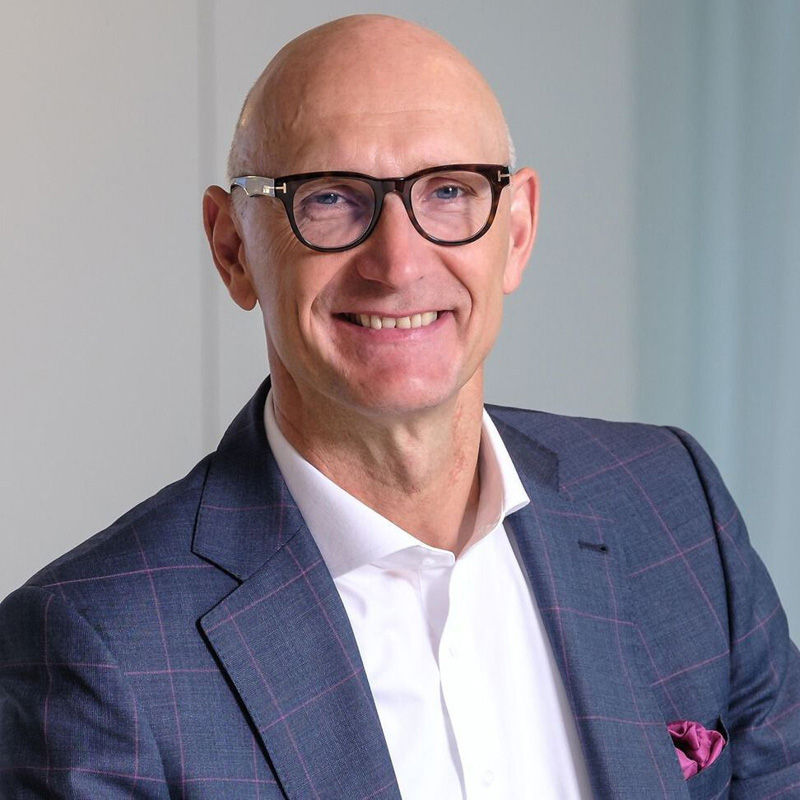
Germany
Timotheus Höttges has served as chairman of the board of management of Deutsche Telekom AG since 2014, leading the telecommunications giant through transformative growth and strategic advancements. In addition to leading the company toward great results, he is known for his commitment to diversity and inclusion, displaying his conviction that diverse organisations are more successful.
At Deutsche Telekom, Timotheus has spearheaded a business model focused on convergent fixed-network and mobile offerings, along with network-driven products like television and cloud services. He re-organised the company’s Service division and established T-Security as an independent cybersecurity unit, positioning Deutsche Telekom as a leader in digital security.
A champion of sustainability, Timotheus took direct responsibility for Deutsche Telekom’s environmental initiatives, with a target of full climate neutrality by 2040. In 2022, he transitioned the network’s operations to renewable energy on a global scale. His commitment to diversity is evident in his efforts to reshape Deutsche Telekom’s workforce, advocating for equal opportunities irrespective of gender, race, or background. Now, Deutsche Telekom is leading the way as one of the first German companies to introduce a gender quota for management, with women making up 26% of its leadership.
Known for his results-driven and values-based leadership, Timotheus has built a culture of inclusivity and innovation at Deutsche Telekom, earning him recognition in CEO and leadership rankings. His legacy of advancing digital transformation, sustainability, and equal opportunity sets a benchmark in responsible leadership, positioning Deutsche Telekom as a model for future-focused, inclusive corporate growth.
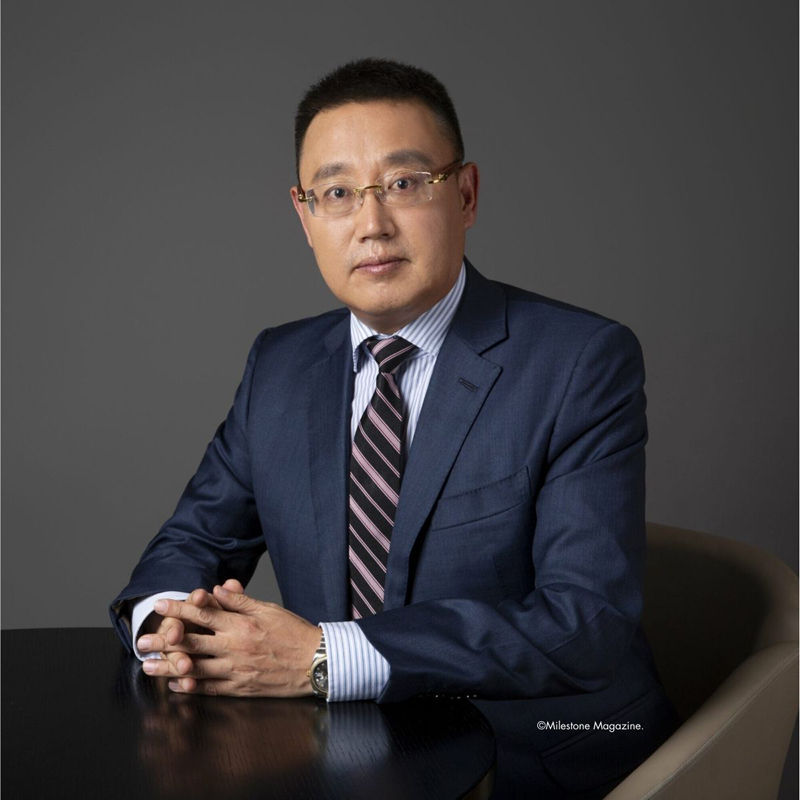
China
Successfully growing a business and transforming its culture and strategy is always a challenge – no matter what the industry or geographical context. Xiaohai Hou is the CEO and chairman of China Resources Beer (CR Beer), the world’s largest beer company in the world’s biggest beer market, China. Joining China Resources Enterprise (CRE) in 2002, shortly after it entered the beer market through a partnership with Snowflake Brewery, Xiaohai has played a transformative role in CR Beer’s evolution, shaping the company to meet the changing demands of Chinese consumers. Mark Greeven of IMD notes, ‘Xiaohai Hou stands out as a transformative leader in the Chinese beverage industry. China Resources Beer has transformed from a traditional beer producer to a dynamic, premium-focused market leader under his leadership.’
CR Beer embarked on a premiumisation strategy that has become central to its success. After becoming CEO, Xiaohai proposed seven strategic initiatives, including manufacturing optimisation, to ‘revive and transform’ the company’s operations. Recognising a consumer trend towards higher-quality products, he led the development of three national premium beers – SuperX, Marrs Green, and Craftsmanship – which quickly outperformed expectations.
As a leader, Xiaohai emphasises setting ambitious goals – both personally and in business. He’s known for his keen judgment and strategic foresight, which he has developed by adopting the mindset of a constant learner and observer. In leading successful teams, Xiaohai underscores finding talent that is a good fit in terms of both experience and personality, highlighting the need for leaders to be personally involved in recruitment.
His successful transformation of CR Beer into a leader in premium beer has set a high standard within the industry, inspiring others with his commitment to quality and operational excellence. Xiaohai’s legacy will be defined by his innovative and forward-thinking strategic approach, positioning CR Beer for lasting impact in China’s beverage industry.

USA
Jensen Huang is the visionary founder and CEO of NVIDIA, a company he co-founded in 1993 that has become a global leader in graphics and AI computing. Born in Taiwan and raised in the United States, his career began at LSI Logic and Advanced Micro Devices.
Under his leadership, NVIDIA pioneered the development of the first graphics processing unit (GPU), the GeForce 256, in 1999. This breakthrough transformed computer graphics, enabling real-time rendering and expanding the gaming industry. As NVIDIA evolved, Jensen steered the company into AI and data science, making GPUs central to AI research and machine learning across fields from healthcare to autonomous vehicles. His strategic foresight led to innovations like the CUDA platform and the acquisition of Mellanox Technologies, positioning NVIDIA as a major player in generative AI and AI computing.
Beyond his contributions to technology, Jensen has shown a strong commitment to education and research, with significant philanthropic donations to Stanford and Oregon State University. His work aims to address societal challenges, using AI to accelerate advancements in drug discovery, healthcare, and robotics.
Jensen’s leadership style is marked by vision and innovation, positioning NVIDIA at the forefront of emerging technologies. His legacy lies in transforming NVIDIA into a powerhouse for AI and computing, driving advancements that have redefined both gaming and modern AI applications, with a focus on enhancing the synergy between technology and humanity.
‘As a leader, Jensen Huang role models the power of intellectual honesty, the ability to be curious about unprecedented possibilities, and is flexible enough to change course when necessary. As the longest serving CEO in Silicon Valley, Huang has shown throughout the thirty-year history of NVIDIA that success doesn’t come from avoiding mistakes but from consistently learning from them,’ says the Thinkers50 Leadership Award winner Kirstin Ferguson.

Norway
Merete Hverven is the CEO of Visma, one of Europe’s leading technology companies and among the largest female-led tech firms globally. Since joining Visma in 2011 as HR director, Merete has held multiple leadership roles before becoming CEO. Recognised as one of the top three influential women in technology by ODA Award Woman in 2019, Merete is a passionate advocate for diversity and equality in the workplace.
Under her leadership, Visma has achieved remarkable growth financially and as an employer, with employee engagement placing in the top 5% of the tech industry. Merete’s innovative approach to customer focus and organisational culture has helped unify Visma’s diverse operations across Europe and Latin America, while her emphasis on simplifying and automating work processes supports more efficient and prosperous business practices globally.
Merete has championed a flat organisational culture at Visma, encouraging openness and transparency from leadership downwards, fostering a collaborative environment. She attributes her success to leveraging her ‘superpower’ in understanding and developing people, crucial in shaping effective leadership strategies. In her view, modern leadership demands being both respected for competence and liked for personal integrity, emphasizing emotional intelligence alongside technical skills.
Her dedication to diversity has seen her initiate several programmes aimed at increasing inclusion within Visma, setting a standard for female leadership in technology. Merete sees diversity as a crucial factor in business success, fostering a culture where different perspectives enhance decision-making and value creation. Her legacy is one of transformative growth and inclusive leadership, inspiring future leaders to value both innovation and equality in their organisational goals.
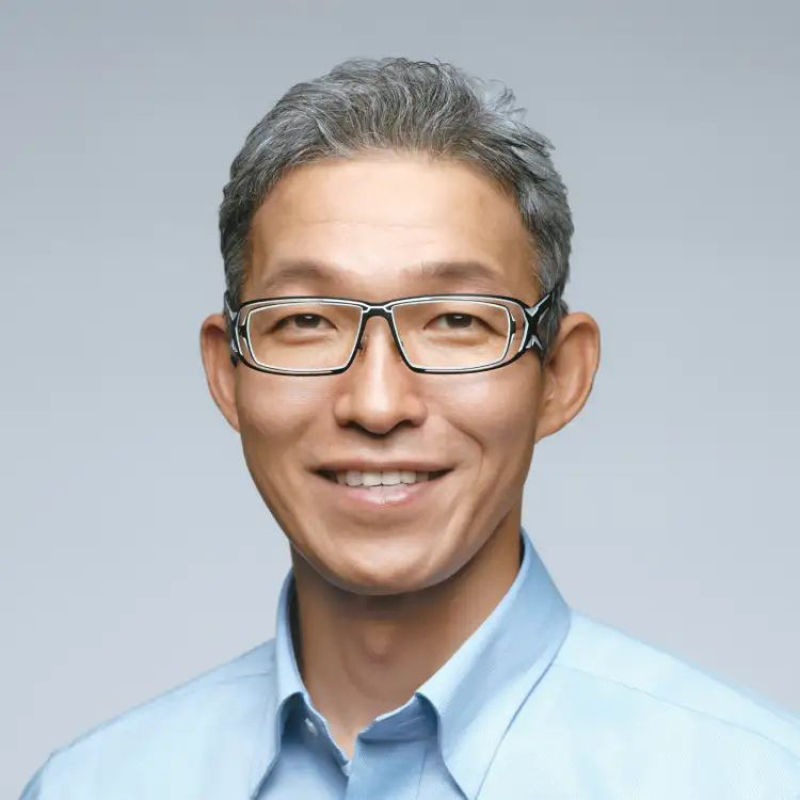
Japan
Hisayuki ‘Deko’ Idekoba, president, CEO, and representative director of Recruit Holdings, is known for his transformative impact on the company since joining in 1999. His leadership has propelled Recruit’s digital transformation, shifting its focus from traditional print marketing to a range of innovative online platforms across sectors such as travel, beauty, and dining. This strategic shift has firmly positioned Recruit as a leader in the digital space.
One of Hisayuki’s most notable achievements was leading Recruit’s acquisition of Indeed in 2012, a move that expanded the company’s influence in HR technology. As CEO of Indeed, he transformed it into a global leader in online job search, connecting millions of job seekers with opportunities worldwide.
Hisayuki’s leadership style is both innovative and empowering, as he explained in a Recruit interview: ‘I want to be the CEO with the least authority and power in the world.’ He believes that true success comes from enabling employees to take ownership and make decisions based on their expertise and passion. This approach has cultivated a workplace culture rooted in inclusivity, innovation, and collaboration, where failure is viewed as part of the journey towards improvement. Beyond organisational growth, Hisayuki has prioritised diversity and inclusion, fostering an environment that values individualism and supports each employee’s unique strengths.
‘Hisayuki Idekoba exemplifies what it means to be an innovation-driven leader,’ says Ben Bensaou of Insead. ‘Recruit has seamlessly embraced a culture that doesn’t just accept change but actively seeks it. By fostering an environment where employees are given permission and support to innovate continuously, he has transformed Recruit into a powerhouse of sustained, agile growth. His commitment to building and nurturing Recruit’s Innovating Engine as a core capability makes him a true inspiration.’
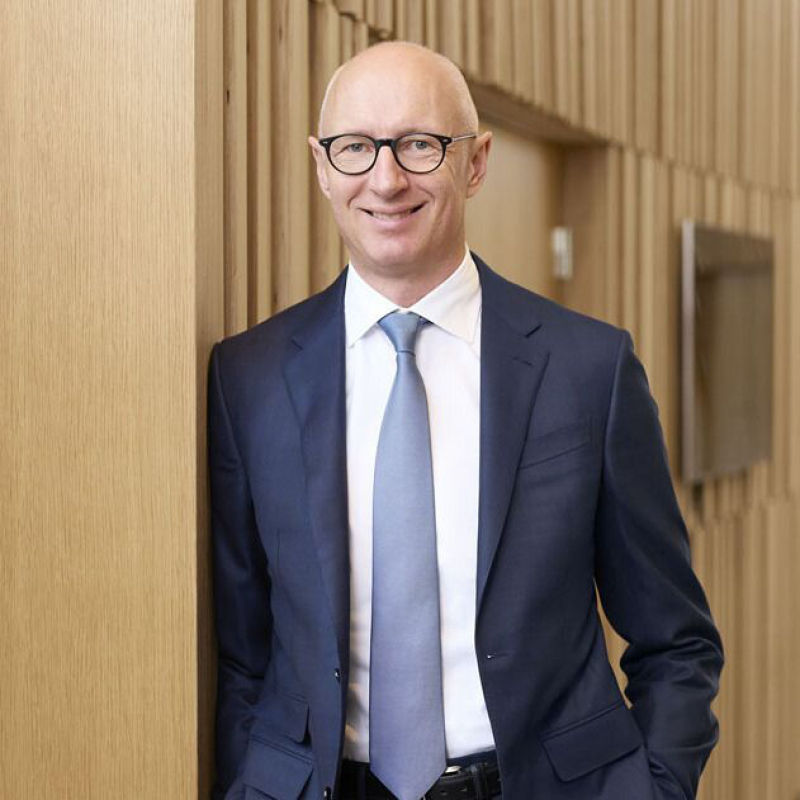
Denmark
Lars Fruergaard Jørgensen, President and CEO of Novo Nordisk, has guided the company to global prominence in diabetes care and obesity treatment through a combination of visionary leadership and deeply held values. Since joining Novo Nordisk in 1991 as an economist, Lars has brought extensive international experience to his role, having held various positions in the Netherlands, the US, and Japan. His background in finance and business administration, complemented by his formative years on a family farm, underpins his approach to responsible and purpose-driven leadership.
Under Lars’s guidance, Novo Nordisk has expanded its mission beyond diabetes care to include obesity treatment, an area where he saw untapped potential. His bold decision in 2017 to invest in the study of semaglutide for obesity, despite a history of challenges in the field, has resulted in breakthrough treatments like Ozempic and Wegovy. These drugs not only manage obesity but also address related health issues, such as heart disease and kidney complications, helping alleviate the financial burden on healthcare systems globally. His focus on patient-centric innovation aligns with the ‘Novo Nordisk Way,’ a corporate culture that prioritises patient needs and aims for excellence.
Lars’s leadership style combines calculated risk-taking with humility. He emphasizes the importance of collaboration, creativity, and ethical governance in driving the company forward. Known for his long-term vision and focus on building a strong foundation for future work and research, Lars prioritises ethical concerns over short-term business results. His values make him a respected role model in healthcare, inspiring others to prioritise both innovation and ethical practices.
Lars’s legacy is defined by his dedication to creating impactful treatments that improve patient lives and support long-term sustainability. His patient-first approach and commitment to advancing healthcare solutions have firmly established Novo Nordisk as a leader in global health.
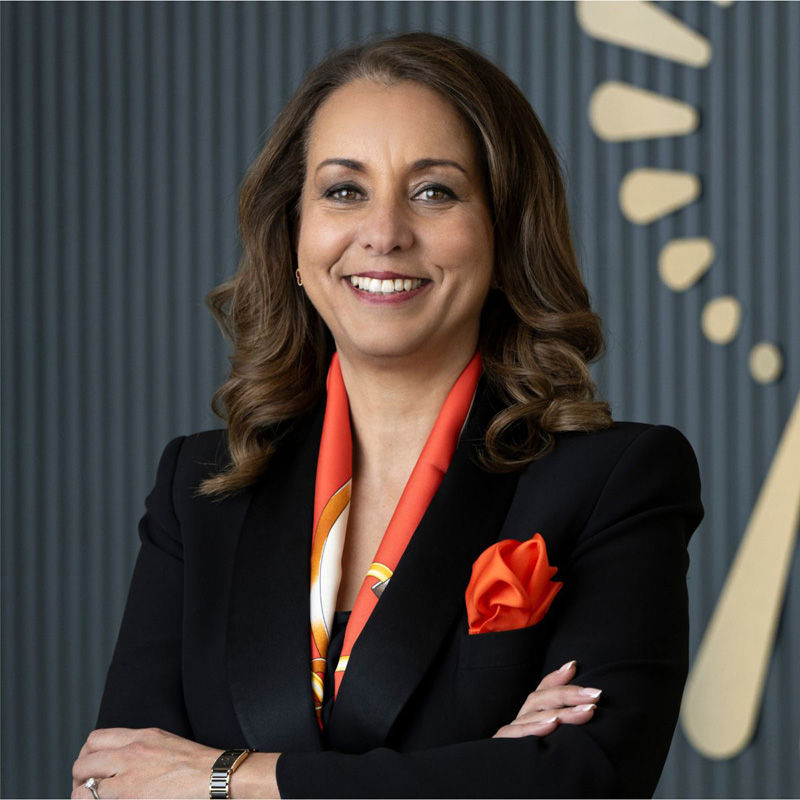
France/Morocco
Dr. Ilham Kadri is the CEO, chair of the executive leadership team, and a board member of SYENSQO, renowned for her purpose-driven approach to leadership and impactful contributions to sustainability and industry transformation. She served as CEO of Solvay from 2019 to 2023, where she led a major transformation, launching the G.R.O.W. strategy and the Solvay One Planet sustainability objectives.
Ilham has had a passion for science since early childhood. Born in Morocco, she grew up in an environment where circularity was a necessity, not a choice, influencing her leadership today. With a career spanning several multinational corporations, she has developed a broad leadership approach across sectors, from automotive and aerospace to water desalination and healthcare. As Chair of the World Business Council for Sustainable Development, she remains a prominent advocate for sustainability and inclusion.
A strong proponent of diversity in STEM, Ilham has founded two non-profit organisations: the Solvay Solidarity Fund in Belgium, which supported over 7,000 families during the COVID-19 pandemic, and the ISSA Hygieia Network in the U.S., dedicated to empowering women in the cleaning industry. Her leadership style is collaborative and strategic, marked by a focus on operational excellence, innovation, and inclusion. While she emphasises the need to create long-term goals that align with short-term performance, she advices leaders to dream big, and work toward a vision bigger than them.
Ilham’s legacy is defined by her dedication to sustainable growth and her role in shaping Europe’s climate neutrality and circularity ambitions. As a French-Moroccan business leader, she is a role model for women and minorities, setting a high standard for purpose-driven leadership and inspiring future leaders to align business success with social and environmental responsibility.

Brazil
Guilherme Leal, a Brazilian entrepreneur and sustainability advocate, co-founded Natura &Co, a global beauty and cosmetics company known for its commitment to ethical business practices and environmental responsibility. Natura &Co has grown to become one of the world’s largest B Corps, embedding social and environmental values into its brands, including The Body Shop and Aesop. His leadership has transformed the company into a model of corporate responsibility, combining commercial success with a commitment to sustainability.
Guilherme’s impact extends beyond his role at Natura &Co. He is involved in initiatives aimed at environmental preservation and social justice, including the Brazilian Coalition on Climate, Forests, and Agriculture and the Political Action for Sustainability Network. Through Instituto Arapyaú, a nonprofit he established in 2008, he directs philanthropic investments to advance sustainable development, support public education, and foster leadership for a more inclusive world.
His dedication to social and environmental impact also drives his influence within The B Team, a collective of global leaders advocating for sustainable and ethical business practices. Guilherme’s leadership embodies his belief that the private sector should actively contribute to societal wellbeing. He believes in an approach to change that is realistic and mindful of the past, yet hopeful for the future. Both individuals and businesses are capable of change through small steps, building a foundation of hope and gaining experiences that reinforce our sense of agency.
Guilherme’s legacy is marked by his vision of business as a force for good. Through impact investing, corporate initiatives, and public policy engagement, he has advanced sustainability and social equity. His contributions continue to inspire a global shift towards inclusive, environmentally conscious practices, leaving a lasting impact on both business and society. Navi Radjou, author of The Frugal Economy, describes him as ‘a true trendsetter in sustainability and regeneration. He embodies humility and courage.’

USA
Deb Liu is the President and CEO of Ancestry, bringing over 19 years of experience in the technology industry to her role leading one of the world’s largest genealogy and consumer genomics companies. Previously, she was a senior executive at Facebook, and her earlier roles include product leadership at PayPal and eBay, where she drove integration between the two platforms. At Ancestry, her focus on enhancing user experience supports the company’s growth and leadership in digital genealogy.
Deb’s experience in several different roles has shaped her leadership, characterised by trust, employee empowerment, and direct communication. She emphasises the importance of speaking with intention and leaning on your team, as leaders especially shouldn’t carry their work alone. Having benefitted from mentorship throughout her career, Deb encourages aspiring leaders to seek mentors and reminds established leaders to give forward to the next generation of leaders.
Beyond her corporate roles, Deb is a dedicated advocate for diversity in technology. She founded Women In Product, a nonprofit organisation with over 30,000 members, aimed at connecting and supporting women in product management. Her advocacy extends to promoting inclusion for Asian Americans, reflected in her membership in the Committee of 100 and her recognition as an A100 honoree by Gold House.
Known for her collaborative and product-focused leadership style, Deb combines technical insight with a vision for accessible, user-centric products. Her work has established her as a role model for women and minorities in tech, inspiring others through her commitment to diversity, mentorship, and innovation. Deb’s legacy is shaped by her efforts to create inclusive environments and support the next generation of leaders in the technology sector.
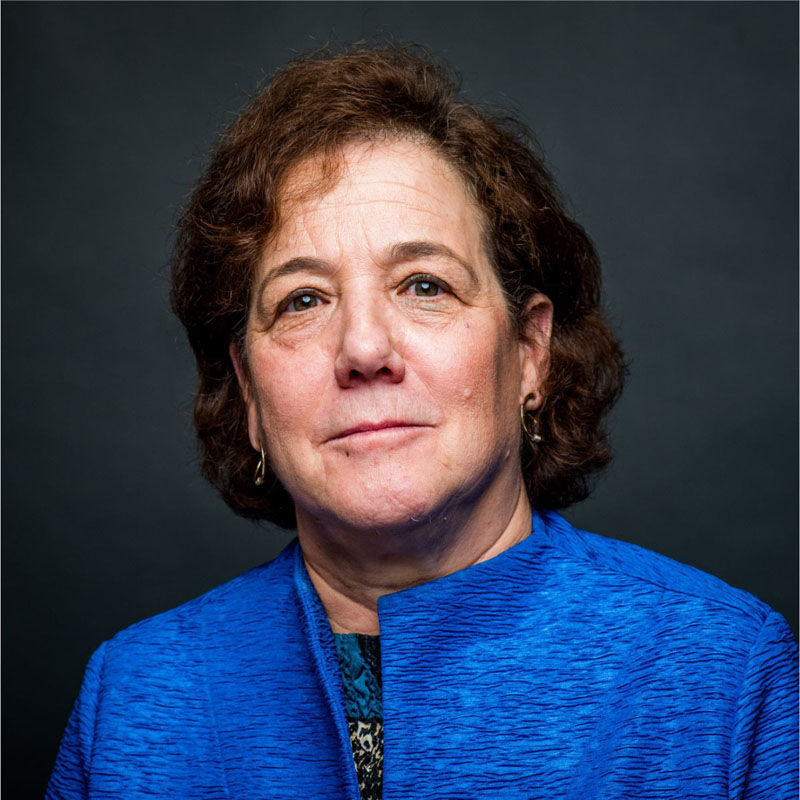
USA
Mindy Lubber is the CEO and president of Ceres, a pioneering organisation in environmental sustainability and responsible investing. With a career spanning decades in environmental advocacy, Mindy has established herself as a leader in integrating sustainable practices within global capital markets. Her commitment to environmental issues began in the 1970s during her college years, setting the foundation for a career dedicated to sustainability. She has held influential roles, including founding Green Century Capital Management, lobbying for clean energy, and working at the Environmental Protection Agency (EPA).
Under Mindy’s leadership, Ceres has demonstrated the financial benefits of sustainability-focused investments. Her work has been instrumental in aligning corporate and investor practices with the Paris Agreement and the United Nations Sustainable Development Goals, highlighting environmental risks as critical financial considerations. Through initiatives like Climate Action 100+, she has effectively positioned sustainability as a core business strategy for major companies and investors.
Mindy’s approach to leadership and climate action emphasises collaboration and ambition, combining both the financial and societal benefits of integrating sustainability efforts with business. She is a strong advocate for mandatory ESG reporting, driving policies that promote transparency and level the playing field across industries. Through Ceres’s climate initiatives, she has coordinated efforts among leading consumer brands to support robust climate policies, reinforcing Ceres’s commitment to environmental and social responsibility.
Known for her collaborative and strategic approach, Mindy champions cross-sector partnerships to tackle issues like climate change, water scarcity, and biodiversity loss. As a tireless advocate for both people and the planet, she has become a respected role model in the sustainability sector. Mindy’s legacy will be defined by her influence in reshaping capital markets towards responsible investment, inspiring companies to embrace sustainability as a path to long-term success and resilience.

United Kingdom
Ellen MacArthur is a prominent advocate for environmental sustainability and the circular economy, renowned for her pioneering work in transforming how businesses and societies think about resource use. In 2005, she gained international acclaim as the fastest solo sailor to circumnavigate the globe, a journey that profoundly influenced her perspective on the fragility of the world’s resources. Spending 71 days at sea, Ellen became acutely aware of the limited supplies she relied on, prompting her to reflect on the broader implications for the global economy.
In 2010, Ellen established the Ellen MacArthur Foundation, an international charity dedicated to accelerating the transition to a circular economy. This innovative economic model aims to redefine products and services, eliminating waste, circulating materials, and regenerating natural systems. Under Ellen’s leadership, the foundation works collaboratively with a network of private and public sector leaders, as well as academic institutions, to drive impactful initiatives addressing critical challenges such as climate change, biodiversity loss, and pollution.
At the heart of Ellen’s leadership is collaboration, as the transition to a circular economy requires all stakeholders across systems to contribute. ‘Solutions to systemic challenges will not be found in siloed actions,’ Ellen told Institute of Environmental Management and Assessment. Her advocacy has emphasised the importance of sustainable design and responsible stewardship, encouraging organisations to view environmental risks as integral to their financial strategies.
Through her efforts, Ellen continues to lead the conversation on sustainability, advocating for a world where resources are used responsibly and thoughtfully. As Stuart Crainer, co-founder of Thinkers50, puts it: ‘There are sometimes second acts in careers. Ellen MacArthur has re-invented herself from being one of the greatest solo sailors to being a powerful advocate and activist for the Circular Economy. She has marshalled the facts and research to create a powerful momentum for awareness and change.’

South Africa
Phuthi Mahanyele-Dabengwa is the first Black female CEO of Naspers South Africa, one of the world’s largest technology investors, marking a significant milestone in the corporate world. She co-founded Sigma Capital before joining Naspers in 2019, where her leadership has driven technological innovation and fostered a thriving local tech ecosystem. At Naspers, she oversees a fund aimed at investing in early-stage tech businesses in South Africa, reinforcing her commitment to nurturing emerging entrepreneurs and driving digital transformation in the country.
As an integral part of Phuthi’s leadership philosophy, she emphasises education and experiences from different global environments, giving leaders a broader view of issues beyond the environment in which they operate. Not limited to leaders, Phuthi is a passionate advocate for youth empowerment and education. She is actively involved in mentorship programs and initiatives such as ‘Dignity Day,’ part of the World Economic Forum’s Young Global Leaders program, which encourages young people to pursue their ambitions with confidence. In addition to education, she believes that digital transformation is a significant contributor to South Africa’s future, elevating the country’s potential through technology investments at Naspers.
Her accomplishments have earned her global recognition, including being named one of the ‘Top 50 Women in the World to Watch’ by The Wall Street Journal and ranking 42nd on Fortune’s Most Powerful Women International list in 2020. As a trailblazing leader, Phuthi serves as an inspiring role model, especially for young women of colour, promoting inclusivity and innovation in the corporate landscape. Her legacy reflects a commitment to fostering opportunities and setting a new standard for purpose-driven leadership in South Africa’s tech sector.

Switzerland
Marc Maurer and Martin Hoffmann have been co-CEOs of On since 2021, leading the company through an era of remarkable growth and innovation. Marc, who joined On in 2013 as Chief Operating Officer, brought a wealth of experience in business development and marketing from his time at Valora Retail and McKinsey & Company. Martin, also chief financial officer since 2013, has an extensive background in finance and operations, previously holding senior roles at Valora Retail. Together, they guide On with a strong focus on company culture, anchored by five core values – Explorer, Athlete, Team, Positive, and Survivor – that promote collaboration and innovation.
Under their leadership, On has emerged as a leader in sustainable sportswear through groundbreaking initiatives such as CleanCloud™ technology, which transforms carbon emissions into sustainable footwear materials. Marc and Martin have set an ambitious target for all shoes to be made from carbon or waste materials by 2028. The company also integrates high percentages of recycled polyester and polyamide in its products and has partnered with Carbios to advance fibre recycling, positioning On at the forefront of sustainable apparel innovation.
Their commitment to social impact is evident through On’s Right to Run programme, which breaks down barriers to movement in marginalised communities. This initiative has already reached over 43,000 people globally, with plans to expand through partnerships with grassroots organisations.
Marc and Martin’s shared leadership approach combines their complementary strengths, creating a transparent and values-driven culture at On. By championing On’s purpose, ‘To ignite the human spirit through movement,’ they inspire both their team and the broader industry to prioritise humanity, sustainability, and community impact. Their legacy at On reflects a forward-thinking model of leadership that harmonises business success with environmental and social responsibility.
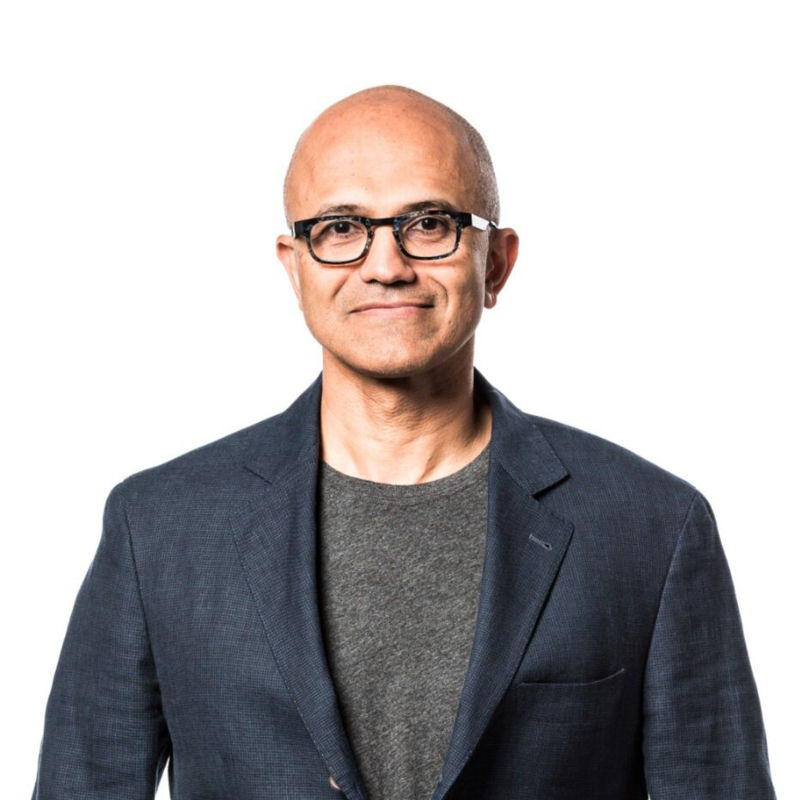
USA
Satya Nadella, Chairman and CEO of Microsoft since 2014, has been instrumental in transforming the company into a global leader in cloud computing and artificial intelligence. Satya’s career at Microsoft began in 1992, where he quickly demonstrated his expertise in both enterprise and consumer technologies, rising through key leadership positions. Before becoming CEO, he served as executive vice president of Microsoft’s Cloud and Enterprise Group, where he championed Microsoft’s shift to cloud computing. His foresight and commitment to innovation led to the development of Azure, which has become one of the most significant cloud platforms in the industry.
Under Satya’s leadership, Microsoft has undertaken major acquisitions, including LinkedIn, GitHub, and Mojang (creator of Minecraft), diversifying the company’s portfolio and extending its reach across new sectors. He has also fostered a profound cultural shift within Microsoft, championing collaboration and openness. He forged partnerships with former rivals like Apple, Google, and Linux, and opened Microsoft’s software to other platforms, embodying a spirit of interconnectedness in the tech ecosystem.
Renowned for his empathetic leadership style, Satya transformed Microsoft’s culture from a “know-it-all” to a “learn-it-all” mindset, advocating for continuous learning and humility. His focus on inclusivity, inspired by personal experiences, has guided Microsoft toward purpose-driven growth and social responsibility, as outlined in his book Hit Refresh.
Satya’s legacy is defined by his ability to combine empathy, innovation, and strategic vision, positioning Microsoft as a leader in both technology and corporate culture. His transformative leadership continues to inspire business leaders worldwide to value growth, collaboration, and ethical responsibility in driving long-term success.

India
Leena Nair is the Global CEO of Chanel, marking a historic appointment as the first woman of colour and an industry outsider to lead the iconic luxury brand. Since assuming this role in 2022, Leena has brought a fresh, human-centric perspective to Chanel, focusing on sustainability, leadership diversity, and preserving the brand’s rich heritage while modernising its operations. Prior to joining Chanel, she spent nearly three decades at Unilever, where she rose to become the company’s first female chief human resources officer. In this role, she transformed Unilever’s culture by implementing policies that championed diversity, equity, and inclusion, achieving gender parity in leadership and committing to a living wage across the supply chain.
Leena’s career reflects a consistent commitment to social responsibility and purposeful leadership. Her transformative impact at Unilever established the company as an employer of choice in over 50 countries, supporting its brand equity and sustainable growth. At Chanel, she has extended this ethos, strengthening the brand’s dedication to renewable energy and sustainable practices while introducing innovative concepts like private invite-only boutiques.
Known for her humanistic leadership style, Leena leverages her HR expertise to foster inclusive, supportive organisational cultures. Her journey from CHRO to CEO has made her a trailblazer in the corporate world, serving as an inspiring role model, particularly for women and people of colour. By aligning Chanel’s growth with a focus on human potential and ethical luxury, she has set a new standard for leadership in the industry.
‘Given her CHRO background, Leena Nair is a humanistic leader who cares about people but also the planet. She is spearheading a holistic sustainability programme at Chanel that aims to regenerate people, places and the planet altogether and synergistically,’ says Navi Radjou, author of The Frugal Economy.
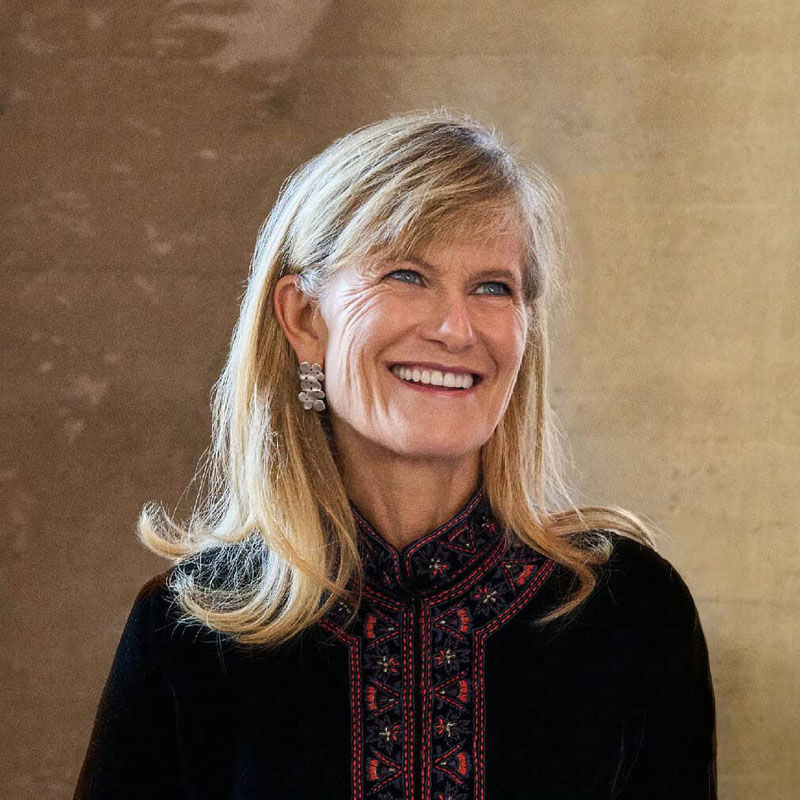
USA
Jacqueline Novogratz is the founder and CEO of Acumen, a global non-profit dedicated to social impact and moral leadership. Known for her pioneering concept of ‘Patient Capital,’ Jacqueline has reshaped philanthropy by championing an investment model that supports market-based solutions to poverty. Her journey began at age 25, when she left a promising career on Wall Street to move to Africa. There, she co-founded Rwanda’s first microfinance institution, Duterimbere, and worked with the World Bank and UNICEF to support underserved communities. This experience shaped her belief in empowering individuals as active participants in their own development, rather than passive recipients of aid.
In 2001, Jacqueline launched Acumen with the aim of transforming traditional philanthropy. Through Patient Capital, Acumen invests in social enterprises that deliver essential services – such as healthcare, housing, and clean energy – to low-income communities, primarily in South Asia and Africa. Under her leadership, Acumen has invested over $260 million in 215 enterprises, impacting more than 648 million people. These ventures have leveraged an additional $746 million in private capital, proving the financial sustainability and scalability of social impact investments.
Jacqueline’s leadership style is defined by her commitment to moral leadership and her belief in dignity-driven approaches to poverty alleviation. Her influence extends globally; she serves on multiple advisory boards and her books, The Blue Sweater and Manifesto for a Moral Revolution, detail her journey and vision for a world where every individual has the opportunity to succeed. ‘Jacqueline has made a profound difference in countless lives by using entrepreneurship to alleviate poverty and empower people. I loved her book Manifesto for a Moral Revolution. It’s a fantastic guide to ethical leadership and meaningful change. She inspires me every day!’ says Zeynep Ton of the MIT Sloan School of Management & Good Jobs Institute.
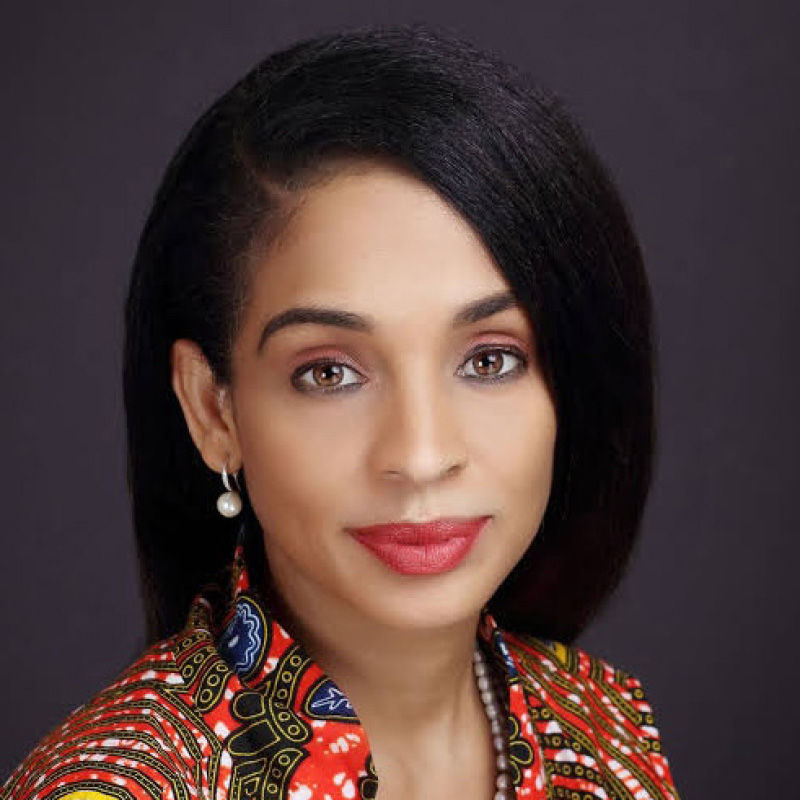
Nigeria
Ndidi Okonkwo Nwuneli is a leader in social innovation, agriculture, and entrepreneurship, with a strong focus on African development. Having assumed the role of CEO of the ONE Campaign in 2024, Ndidi has spent over 25 years championing sustainable initiatives that address critical challenges in food security, youth development, and economic empowerment. Born in Nigeria, she began her career as a management consultant at McKinsey & Company before returning to Nigeria in 2000 to pursue social impact. There, she founded FATE Foundation to support aspiring entrepreneurs and later launched LEAP Africa, an organisation dedicated to inspiring young African leaders.
As an entrepreneur, Ndidi has co-founded transformative ventures like Sahel Consulting Agriculture & Nutrition, which promotes sustainable agricultural practices, and AACE Foods, a local food processing company that strengthens African food systems. Her latest venture, Nourishing Africa, is a digital platform that connects food and agriculture entrepreneurs across the continent, encouraging collaboration and growth.
Ndidi’s leadership is defined by her hands-on, collaborative approach and commitment to sustainable development. Through her partnerships with governments, the private sector, and farming communities, she has helped improve food security, create jobs, and uplift rural communities across Africa. Her legacy is one of empowering communities, fostering social impact, and driving sustainable change in Africa.
‘Ndidi is a force of nature,’ says Linda A. Hill, Professor and Faculty Chair of the Leadership Initiative at Harvard Business School ‘Her life is a lesson in what great leadership is all about – she builds communities of leaders with the talent and tenacity to co-create a future in which no one is marginalized. Ndidi has pioneered a new way of three-sector leadership demanded by the world’s challenges. Since her days as an MBA student, I have been humbled in her presence.’
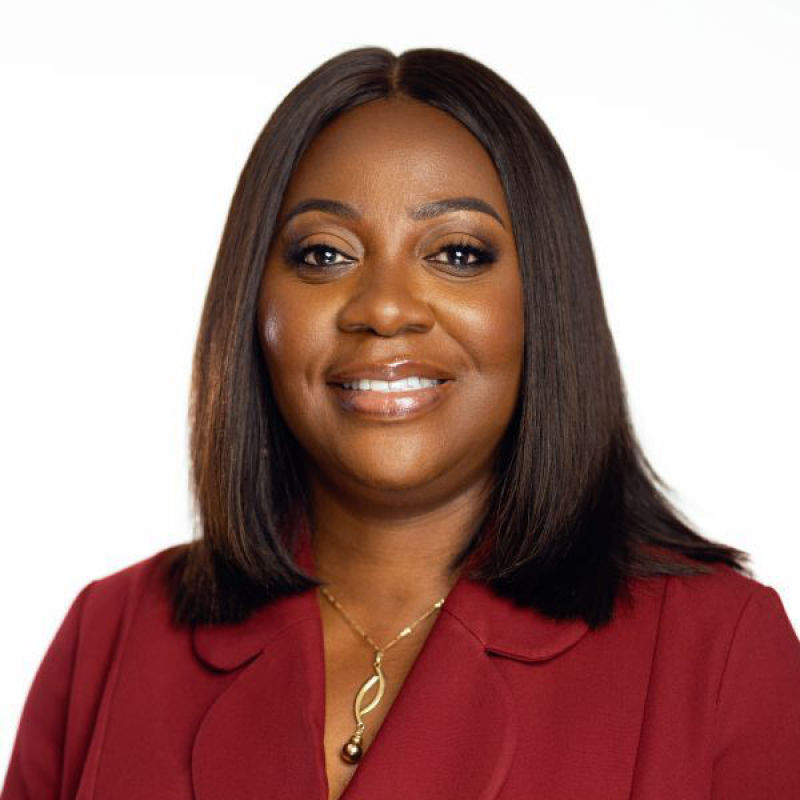
Ghana
Patricia Obo-Nai is the CEO of Vodafone Ghana, appointed in April 2019, and a prominent leader in the telecommunications sector with over 25 years of industry experience. She began her career at Millicom Ghana Ltd (Tigo), where she rose to become the company’s first female chief technology officer, playing a pivotal role in the shift from analogue to digital and extending network access across the country. Her expertise and commitment to innovation saw her rise through various senior roles at Vodafone Ghana, including technology director and director for fixed business and customer operations.
As CEO, Patricia has guided Vodafone Ghana’s continued growth and focus on customer service excellence, steering the company towards innovative digital solutions. Her leadership prioritises serving the community, evident in Vodafone’s efforts to empower women in Ghana through access to technology, allowing them to establish and manage personal finances. Some initiatives have extended beyond Vodafone’s usual services, such as using existing communications technology to allow pregnant women to get scans locally and send the results to doctors elsewhere.
Patricia is a dedicated advocate for gender diversity in technology, actively fostering initiatives that support women in STEM. She launched Vodafone’s ‘Women in Technology’ platform, providing mentorship and opportunities for young women, and established the Female Engineering Students Sponsorship Programme (FESSP) to encourage more women to pursue engineering careers. These efforts have contributed to a notable increase in female representation within Vodafone Ghana’s technology division, fostering a more inclusive workplace culture.
Beyond her corporate accomplishments, Patricia is recognised as an influential mentor and role model. Through her community-focused leadership and values-driven policies, Patricia has made Vodafone Ghana a respected, socially responsible leader in the industry, inspiring the next generation of women in technology and creating lasting, positive change.

Australia
Melanie Perkins is an Australian technology entrepreneur and co-founder of Canva, a design platform with a community of over 130 million active users globally. Known for her visionary leadership, Melanie has transformed the way people approach graphic design, making it accessible to users of all skill levels. Born in 1987 in Perth, she displayed an entrepreneurial spirit from an early age, starting her first business at fourteen by selling handmade scarves. Her journey into the tech industry began with Fusion Books, a platform she co-founded in 2007 to allow students to create their own school yearbooks. This success laid the groundwork for Canva’s launch in 2013.
Under Melanie’s guidance, Canva has grown into one of Australia’s most successful tech companies, supporting a global user base and expanding the design technology sector. As CEO and co-owner, Melanie has played a crucial role in the company’s economic impact, creating jobs and solidifying Australia’s place in the global tech landscape. Her leadership style prioritises simplicity, innovation, and accessibility, aligning with Canva’s mission to empower everyone to create professional-quality designs. As one of the youngest female CEOs in the tech industry, she has implemented inclusive hiring practices at Canva, which have led to greater female representation and a more diverse workforce.
April Rinne, author of Flux, says: ‘Melanie Perkins walks the talk of responsible innovation and future-forward leadership. With Canva, she made creativity tools accessible to all, upending the status quo in a way that’s inclusive and deeply human. But that’s just the beginning: Even more, Melanie is committed to “doing the most good” in solving the world’s big problems. She is one of the most vocal, active, and generous voices behind the future of philanthropy, altruism, and impact. If that’s not the kind of leadership the future demands, I don’t know what is!’
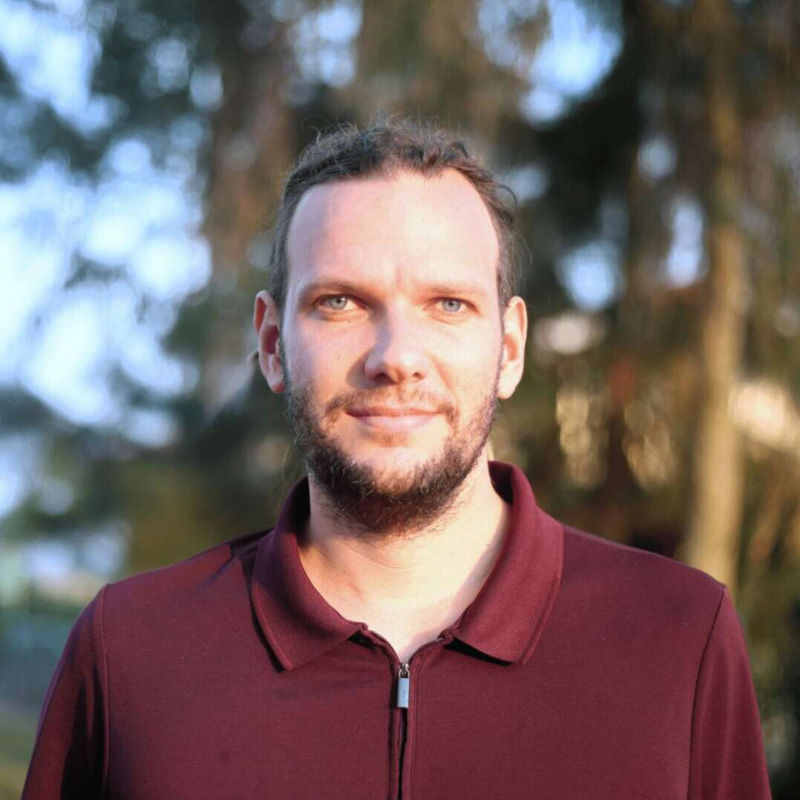
Germany
Etienne Salborn is a social entrepreneur and founder of the Social Innovation Academy (SINA), a transformative initiative empowering disadvantaged youth and refugee communities in Africa to become self-sufficient social entrepreneurs. His journey began in Uganda in 2006 when he initiated an educational sponsorship program for orphans. By 2013, recognising the need for long-term support, he established SINA. Today, the academy operates across 18 communities in six African countries, helping participants transition from aid recipients to active changemakers through a unique model of ‘freesponsibility’ – a blend of freedom and responsibility.
SINA’s model fosters independence, with each community self-organising and allowing participants to create their own personal and professional growth paths. This approach has enabled the birth of over 80 social enterprises tackling pressing social and environmental issues, from organic mosquito repellent soap to construction materials made from recycled plastics. Together, these enterprises provide around 1,000 jobs, driving economic empowerment and sustainable local development.
Etienne’s leadership style is marked by a deep commitment to trust and self-management. He believes that communities thrive when given ownership over their futures, and this ethos underpins SINA’s structure. His influence extends beyond SINA, where he is also recognised as an academic lecturer and has received accolades including ‘Influential Leader’ by AACSB and ‘Innovation Ecosystem Builder’ by MIT D-Lab.
Etienne’s dedication to self-sustaining social impact has not gone unnoticed. Under his leadership, SINA has garnered international recognition and praise from figures such as Barack Obama and Ban Ki-moon. His legacy lies in redefining empowerment as a process rooted in local leadership, proving that lasting social innovation is achieved by fostering autonomy and resilience from within. Through SINA, Etienne continues to inspire a new generation of leaders who are reshaping their communities with dignity and purpose.

USA
Dr. Lisa Su, chair and CEO of AMD, has spearheaded the company’s transformation into a leader in high-performance and adaptive computing. Joining AMD in 2012, Lisa began her work on pushing the boundaries of technology to address global challenges through next-generation computing and AI solutions.
Going through several leadership positions in the company, she has integrated AMD’s business units, operations, and infrastructure into a unified, market-facing organisation. Her strategic insight culminated in her appointment as CEO, where she led AMD’s revival and cemented its position as a major competitor in the semiconductor industry.
Lisa’s impact extends beyond organisational performance. Known for her innovative leadership style, she advocates for bold, calculated risks, creating a culture at AMD that embraces ambitious technological advancement. Her public service roles, including appointments to the President’s Council of Advisors on Science and Technology and the Department of Homeland Security’s AI Safety and Security Board, reflect her commitment to ethical leadership in technology. She’s also a spokesperson and role model for women’s leadership, working closely with the Global Semiconductor Alliance’s women’s leadership initiative. The best way to get more women in leadership positions, Lisa believes, is to take chances and give big opportunities to talented women, letting them show their capabilities.
Lisa advocates for a comprehensive approach to AI, embedding it from client devices to cloud computing, aiming to enhance productivity and solve complex challenges. Her strategy also emphasises resilience amidst geopolitical unrest and the turbulent business environment. Through her leadership, Lisa has positioned AMD as a force driving the future of technology, leaving a lasting impact in an industry reshaped by her drive for progress, innovation, and inclusivity.

USA
Julie Sweet is the chair and CEO of Accenture, a role in which she leads the global professional services company’s ambition to be the world’s trusted reinvention partner. Prior to becoming CEO, she led Accenture’s North America business, the company’s largest geographic market, and served as general counsel, secretary, and chief compliance officer. Before joining Accenture in 2010, Julie was a partner at Cravath, Swaine & Moore LLP, where she specialised in corporate law and co-led the opening of the firm’s Hong Kong office.
Julie’s background in law has shaped her leadership approach, instilling a strong sense of continuous learning, adaptability, and resilience. Under her direction, Accenture has championed technology as a ‘lifeline’ for rebuilding industries and creating opportunities, a focus expressed in its brand campaign, ‘Let there be change.’ Julie believes that innovation is not a solitary endeavour; rather, it requires partnerships and collaboration beyond the boundaries of a single organisation: ‘When I talk to a CEO or a chief digital officer, I ask them about their innovation strategy and who they partner with. If they do not have clear partners, I know they are not really being innovative, because innovation cannot be done alone. It has to have organizations and partners outside of your own company.’ Her emphasis on technology’s transformative potential reflects her belief in the importance of digital innovation for growth and sustainability.
Her influence extends well beyond Accenture. Julie serves on the Board of Trustees for the World Economic Forum and the Center for Strategic & International Studies, and she co-chairs both the New York Jobs CEO Council and Welcome.US. She is also actively engaged with the Marriott Foundation’s Bridges from School to Work programme, reflecting her dedication to economic inclusion and social mobility. Her legacy is defined by her dedication to fostering adaptable, technology-driven organisations and her commitment to driving positive societal change.
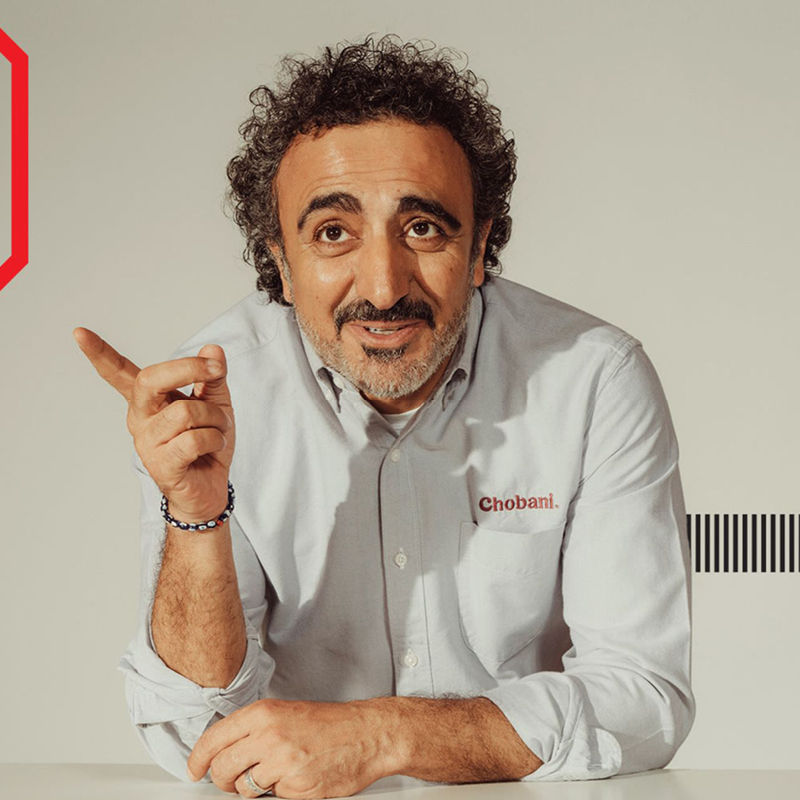
USA
Hamdi Ulukaya, widely recognised as the ‘Yogurt King,’ is the founder and CEO of Chobani, the top-selling Greek yogurt brand in the United States. Born into a Kurdish dairy-farming family in Eastern Turkey, Hamdi grew up immersed in traditional yogurt-making. In 1994, he moved to the United States, drawn to upstate New York, which reminded him of his rural homeland. His journey to business success began in 2005 when he secured a loan to purchase an old yogurt plant, and two years later, Chobani was born. Since then, it has grown into a billion-dollar company, generating over $2 billion in annual sales.
Hamdi’s approach to leadership centres on his commitment to ‘doing well by doing good.’ Known for his employee-first policies, he has introduced profit-sharing, paid parental leave, and competitive wages for his 2,000+ employees, fostering a supportive and inclusive workplace. His belief in social responsibility is equally evident in his refugee advocacy. Hamdi has championed initiatives to employ refugees, famously stating that ‘the minute a refugee gets a job is the minute they stop being a refugee.’ He founded the Tent Partnership for Refugees, actively working to integrate refugees into the workforce.
Under his leadership, Chobani has engaged in extensive philanthropy, including the donation of over 10.5 million products to combat food insecurity across the U.S. Through his compassionate approach to leadership and his dedication to social impact, Hamdi has set a powerful example of how business can serve as a vehicle for positive change. ‘Hamdi Ulukaya has succeeded wildly by putting people at the center of his business, both customers and employees. He understands that leadership, at its core, is about setting other people up for success,’ says Anne Morriss, coauthor of Move Fast & Fix Things.
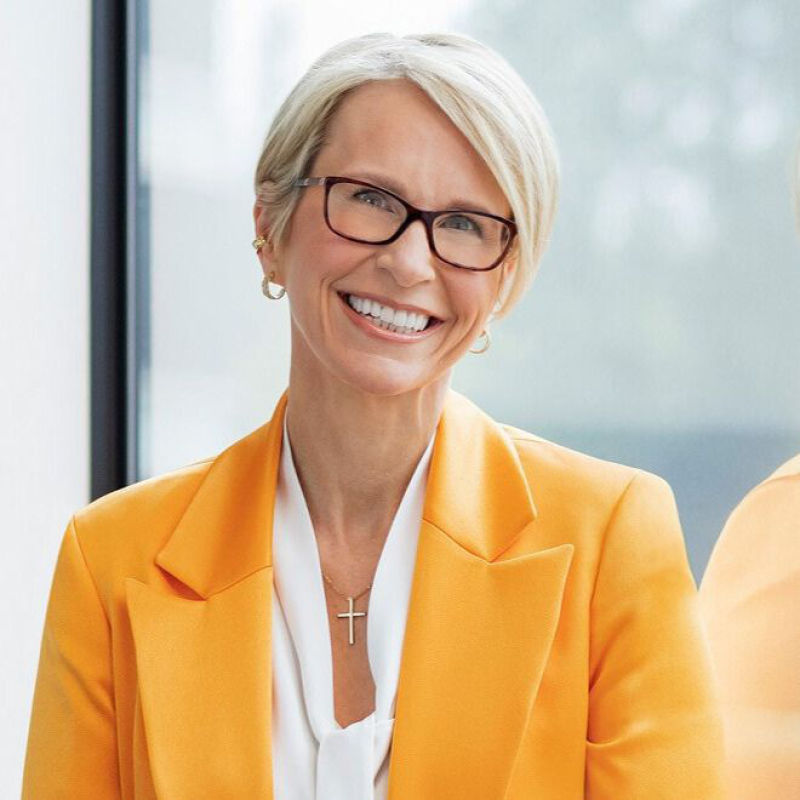
United Kingdom
Emma Walmsley is the CEO of GSK, a role she assumed in 2017 following a successful career at L’Oréal, where she spent 17 years in senior roles across Paris, London, New York, and Shanghai. Emma joined GSK in 2010, stepping into a leadership position within its global consumer healthcare division, eventually becoming CEO of GSK Consumer Healthcare in 2015. Her work in this sector proved transformative, as she oversaw a business with operations in over 100 countries, focusing on growth and innovation within consumer healthcare. Emma’s leadership also played a key role in managing GSK’s joint venture with Novartis, further expanding GSK’s influence in the healthcare sector.
Since her appointment as CEO, Emma has championed a patient-centred and values-based approach to leadership, guiding the company towards sustainable and ethical healthcare solutions. Her tenure is marked by her dedication to aligning GSK’s mission with societal needs, promoting access to healthcare while fostering a work environment rooted in trust, accountability, and empowerment.
Emma’s unique leadership style combines resilience, adaptability, and an inclusive perspective, qualities shaped by her diverse career across various international markets. As one of the few female leaders in the pharmaceutical industry, she has become an influential figure, inspiring a generation of women leaders through her achievements and commitment to positive change in healthcare.
‘Having seen Emma Walmsley firsthand at GSK, launching and driving the company’s sustainability transformation, she truly exemplifies how an executive sponsor should lead change. Her commitment to embedding sustainability at the top of GSK’s objectives and mobilising the organisation has set a benchmark in transformational leadership,’ says Antonio Nieto Rodriguez, author of The Project Management Handbook.

China
Xin Hao is the founder and CEO of Green Zhejiang, China’s first major NGO focused on water sustainability. Raised in the Zhejiang province, Xin pursued a Master’s in Environmental Science and Policy at Clark University in the United States on a prestigious Ford fellowship. Upon returning, he resumed his environmental work, which had begun during his undergraduate years at Zhejiang University, when he organised the ‘Millennium Environmental Protection Cycling’ – a 2,000-kilometre cycling campaign aimed at raising awareness of water pollution across the region. Inspired by the severe pollution he witnessed, Xin established the Hangzhou Eco-Culture Association, which later evolved into Green Zhejiang in 2013.
Under Xin’s leadership, Green Zhejiang has grown into the largest environmental NGO in Zhejiang, pioneering projects that mobilise communities and involve citizens as active stakeholders in environmental protection. Among its many initiatives, Green Zhejiang introduced an interactive pollution map and the ‘citizen river chiefs’ policy, empowering locals to take responsibility for their water resources. The organisation’s educational programs, including ‘River Angels’ and the Earth Successor programme, aim to inspire young people to champion sustainable practices.
Xin’s approach to leadership is collaborative and community-focused, building cross-sector networks to support environmental initiatives. By mobilising resources from local government, businesses, and civilian networks, Green Zhejiang has become a platform for multi-stakeholder engagement and grassroots activism.
Xin’s legacy lies in his transformative vision of local engagement in environmental action. Through Green Zhejiang, he has created a blueprint for community-based water conservation, encouraging a new generation to protect and manage their natural resources. His work exemplifies the power of grassroots efforts in driving sustainable change, positioning him as a leading figure in environmental activism in China.

USA
Shelley Zalis, also known as the ‘Chief Troublemaker,’ is a prominent American entrepreneur and advocate for gender equity in the workplace. She began her career in media research, where her contributions at Nielsen Reel Research led to the adoption of digital survey methods. In 2000, Shelley founded Online Testing Exchange (OTX), pioneering online survey practices that transformed data collection in the film industry.
In 2012, Shelley launched The Equality Lounge as a response to gender disparities at major tech conventions. This initiative, which began as a small gathering space, evolved into a renowned platform for inclusive leadership and gender equity, known today as The Female Quotient (The FQ). With a global community of women in business, The FQ advocates for gender parity and provides visibility for women across all industries. The FQ’s signature Equality Lounge® has reshaped the business agenda at landmark events, including CES, Davos, and Cannes Lions, creating spaces where women are celebrated and their voices amplified.
Shelley further advanced her mission by co-founding the #SeeHer initiative in 2016, targeting accurate representation of women and girls in media and advertising. Under her guidance, #SeeHer achieved a 20% increase in accurate female representation by 2018, marking a significant milestone in media portrayal.
Beyond her business achievements, Shelley serves on multiple nonprofit boards dedicated to advertising, diversity, and inclusion. ‘Shelley Zalis refuses to give the status quo the last word,’ says Anne Morriss, coauthor of Move Fast & Fix Things. ‘She is our favorite type of leader: relentlessly talented, infectiously visionary, and impatient for a better, more equitable world.’
The Fuqua/Coach K Center on Leadership & Ethics (COLE) is a premier academic centre at the Fuqua School of Business, Duke University, Durham, North Carolina. COLE’s Mission is to empower leaders of consequence to change the world through knowledge and connections, focusing on talent and knowledge development in the context of leadership ethics.
Based in Madrid, Executive Excellence (Ex2) is a management knowledge platform that amplifies the work of the world’s leading management thinkers. Through its partnership with Thinkers50, Ex2 seeks to accelerate and disseminate the latest thought leadership and management ideas to where they can have the most impact, helping business practitioners and organisational leaders to retain their competitive advantage.
The Global Institute of Leadership and Technology (GILT) offers experience-based educational programs in the fields of technology and leadership. These include accredited degrees, executive education programs, and tailored programs for organisations, senior executives, and young professionals. Founded in 2019 by Anders Inset and Robin Weninger, GILT is headquartered in Frankfurt, Germany.
The Institute for Competitiveness (IFC) serves as the Indian hub within the global network of the Institute for Strategy and Competitive at Harvard Business School (HBS). IFC is dedicated to expanding and disseminating the body of research and knowledge and strategy as pioneered by Michael Porter of HBS. It conducts and supports indigenous research, offers academic and executive courses, and provides advisory services to the government and corporate sectors.
Founded by renowned Harvard Business School Professor Frances Frei, best-selling author Anne Morriss, and technology executive Cara Shortsleeve, The Leadership Consortium (TLC) helps best-in-class organisations create the conditions for more and varied leaders to thrive. Since 2018 TLC has been delivering custom advisory work, executive coaching, and an innovative leadership accelerator program called the TLC Leaders Program.
The Stockholm School of Economics is an academic hub for ambitious students and researchers from all over the world and has been ranked as one of the best business schools in Europe by the Financial Times. By working closely with corporate partners and society at large, SSE has been creating opportunities for its graduates for over 100 years.
Enquire about Leaders50 partnership opportunities for your organisation

Thinkers50 Limited
The Studio
Highfield Lane
Wargrave RG10 8PZ
United Kingdom

Thinkers50 Limited
The Studio
Highfield Lane
Wargrave RG10 8PZ
United Kingdom

Thinkers50 Limited
The Studio
Highfield Lane
Wargrave RG10 8PZ
United Kingdom
| Cookie | Duration | Description |
|---|---|---|
| LANG | 9 hours | Linkedin set this cookie to set user's preferred language. |
| nsid | session | This cookie is set by the provider PayPal to enable the PayPal payment service in the website. |
| sp_landing | 1 day | The sp_landing is set by Spotify to implement audio content from Spotify on the website and also registers information on user interaction related to the audio content. |
| sp_t | 1 year | The sp_t cookie is set by Spotify to implement audio content from Spotify on the website and also registers information on user interaction related to the audio content. |
| tsrce | 3 days | PayPal sets this cookie to enable the PayPal payment service in the website. |
| x-pp-s | session | PayPal sets this cookie to process payments on the site. |
| __cf_bm | 30 minutes | This cookie, set by Cloudflare, is used to support Cloudflare Bot Management. |
| Cookie | Duration | Description |
|---|---|---|
| l7_az | 30 minutes | This cookie is necessary for the PayPal login-function on the website. |
| Cookie | Duration | Description |
|---|---|---|
| CONSENT | 2 years | YouTube sets this cookie via embedded youtube-videos and registers anonymous statistical data. |
| _ga | 2 years | The _ga cookie, installed by Google Analytics, calculates visitor, session and campaign data and also keeps track of site usage for the site's analytics report. The cookie stores information anonymously and assigns a randomly generated number to recognize unique visitors. |
| _gat_gtag_UA_10408481_1 | 1 minute | Set by Google to distinguish users. |
| _ga_ZP8HQ8RZXS | 2 years | This cookie is installed by Google Analytics. |
| _gid | 1 day | Installed by Google Analytics, _gid cookie stores information on how visitors use a website, while also creating an analytics report of the website's performance. Some of the data that are collected include the number of visitors, their source, and the pages they visit anonymously. |
| Cookie | Duration | Description |
|---|---|---|
| NID | 6 months | NID cookie, set by Google, is used for advertising purposes; to limit the number of times the user sees an ad, to mute unwanted ads, and to measure the effectiveness of ads. |
| test_cookie | 15 minutes | The test_cookie is set by doubleclick.net and is used to determine if the user's browser supports cookies. |
| VISITOR_INFO1_LIVE | 5 months 27 days | A cookie set by YouTube to measure bandwidth that determines whether the user gets the new or old player interface. |
| YSC | session | YSC cookie is set by Youtube and is used to track the views of embedded videos on Youtube pages. |
| yt-remote-connected-devices | never | YouTube sets this cookie to store the video preferences of the user using embedded YouTube video. |
| yt-remote-device-id | never | YouTube sets this cookie to store the video preferences of the user using embedded YouTube video. |
| yt.innertube::nextId | never | This cookie, set by YouTube, registers a unique ID to store data on what videos from YouTube the user has seen. |
| yt.innertube::requests | never | This cookie, set by YouTube, registers a unique ID to store data on what videos from YouTube the user has seen. |
| Cookie | Duration | Description |
|---|---|---|
| DEVICE_INFO | 5 months 27 days | No description |
| loglevel | never | No description available. |
| m | 2 years | No description available. |
Thinkers50 Limited has updated its Privacy Policy on 28 March 2024 with several amendments and additions to the previous version, to fully incorporate to the text information required by current applicable date protection regulation. Processing of the personal data of Thinkers50’s customers, potential customers and other stakeholders has not been changed essentially, but the texts have been clarified and amended to give more detailed information of the processing activities.